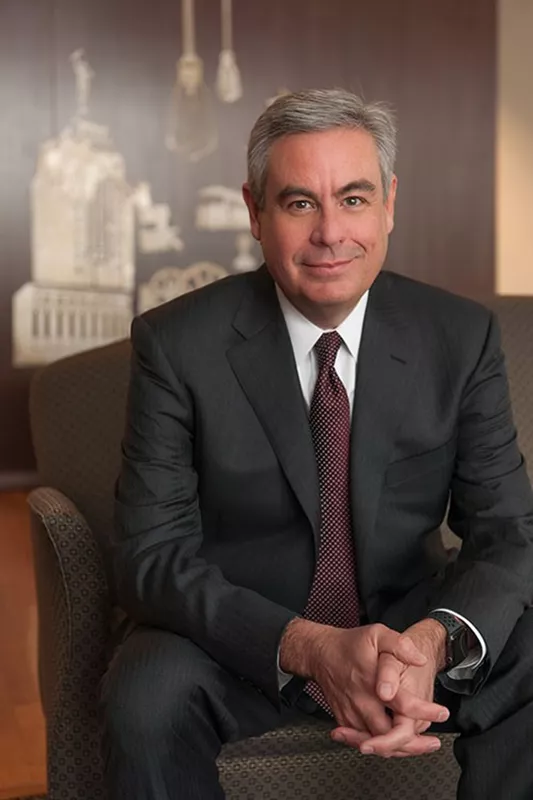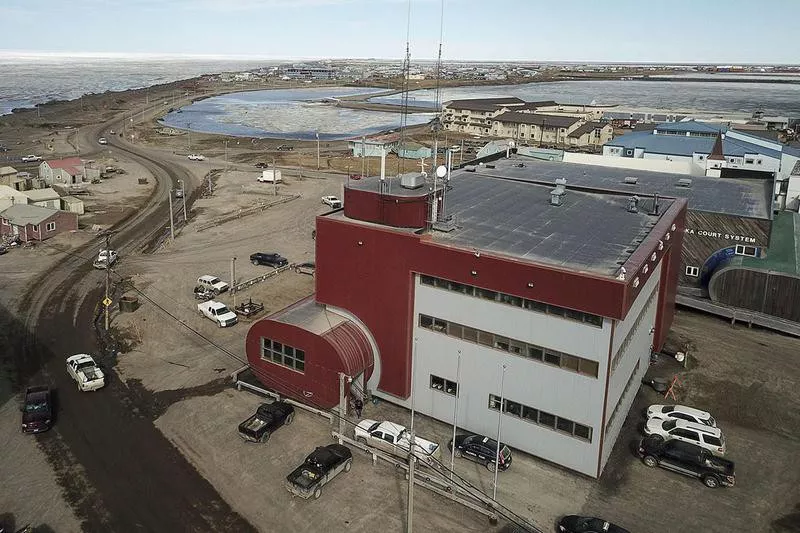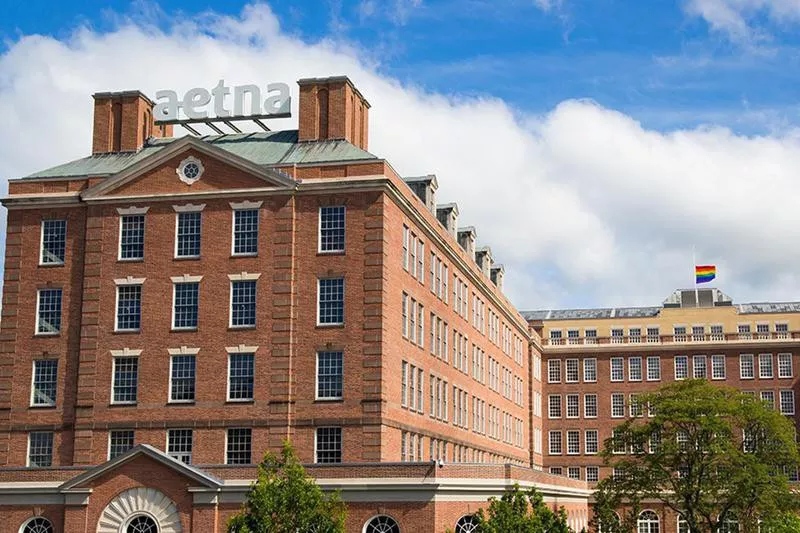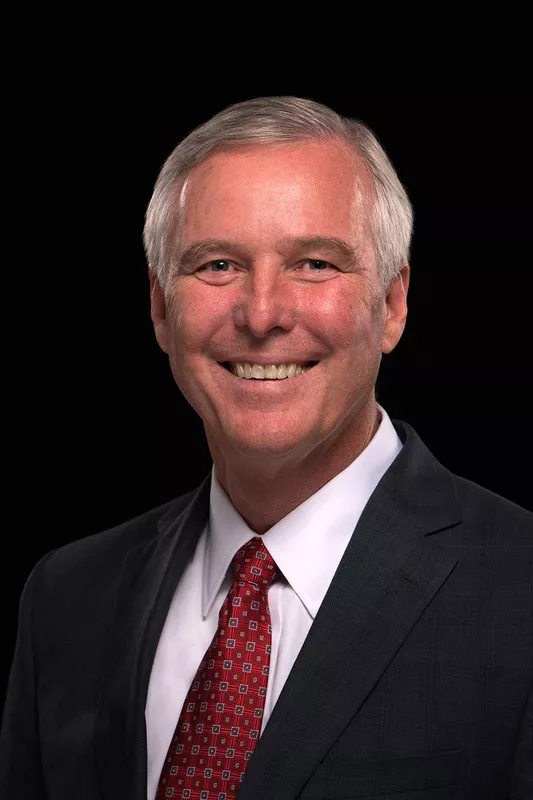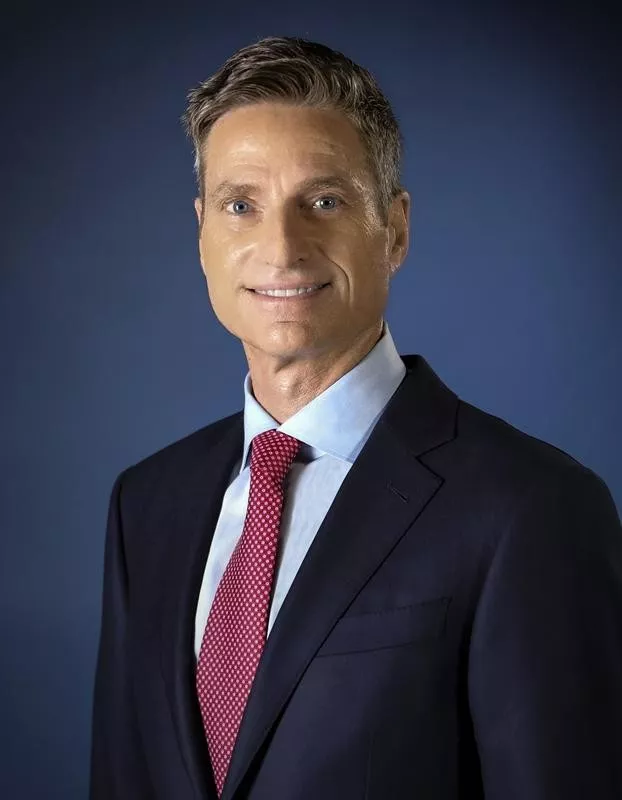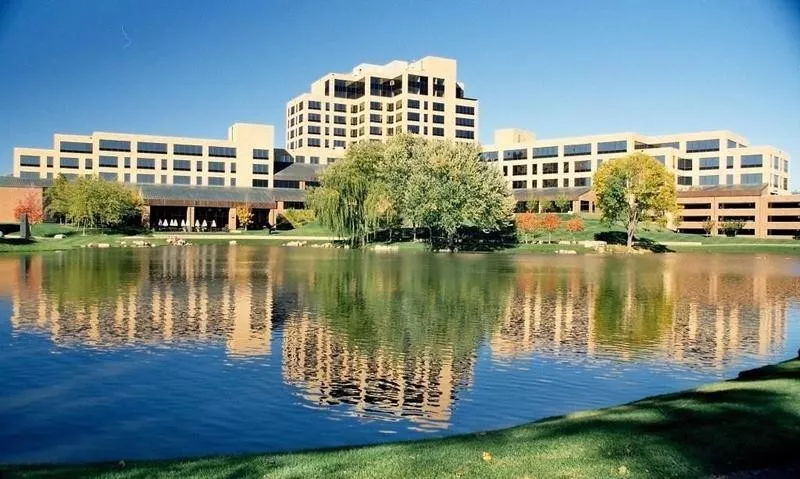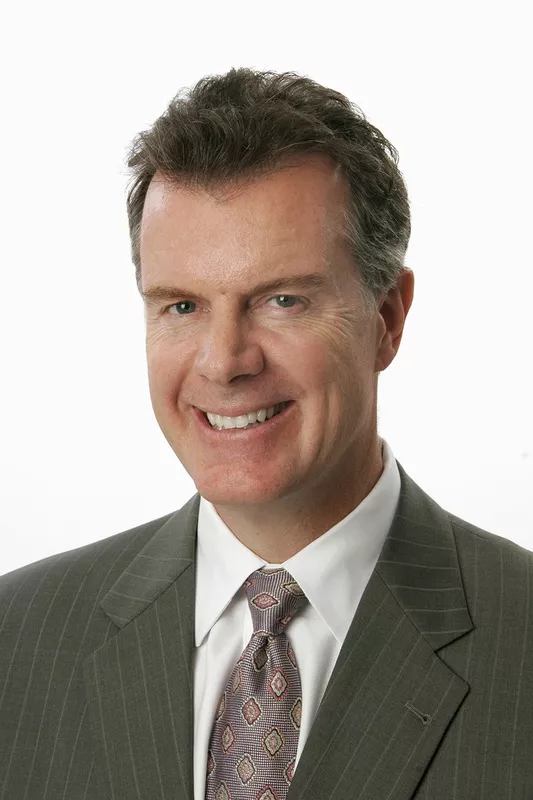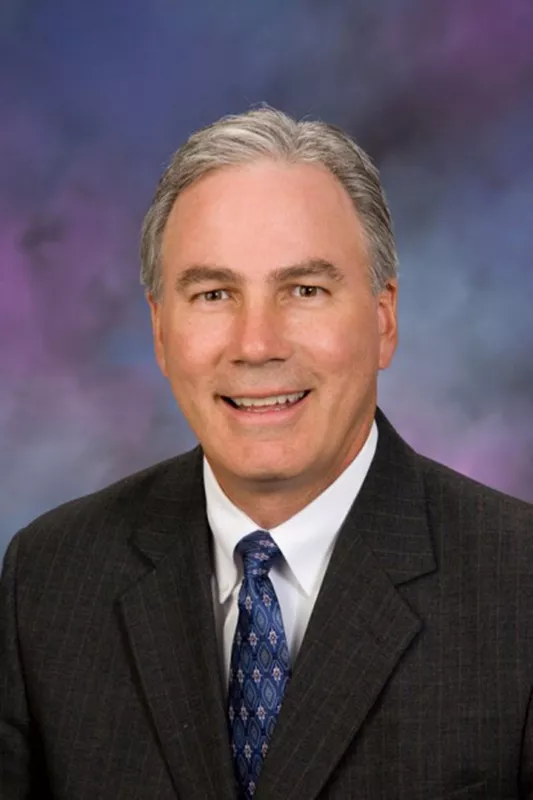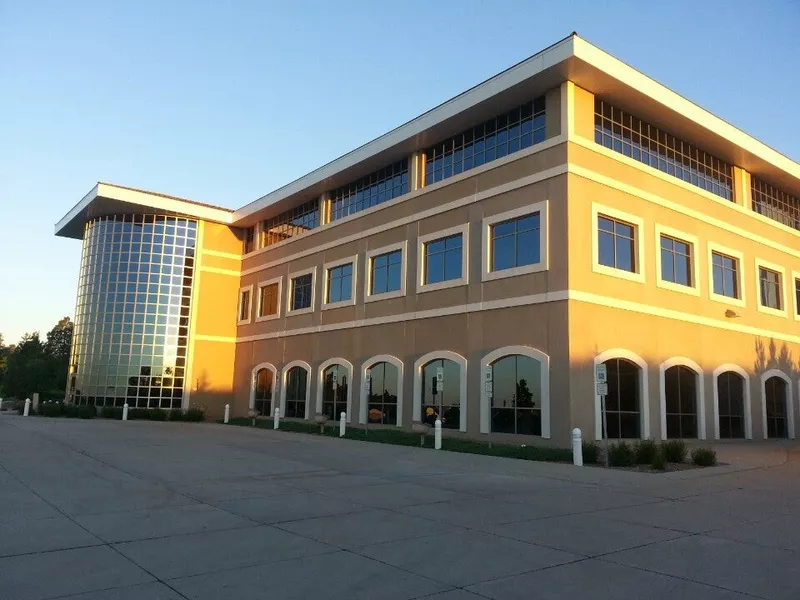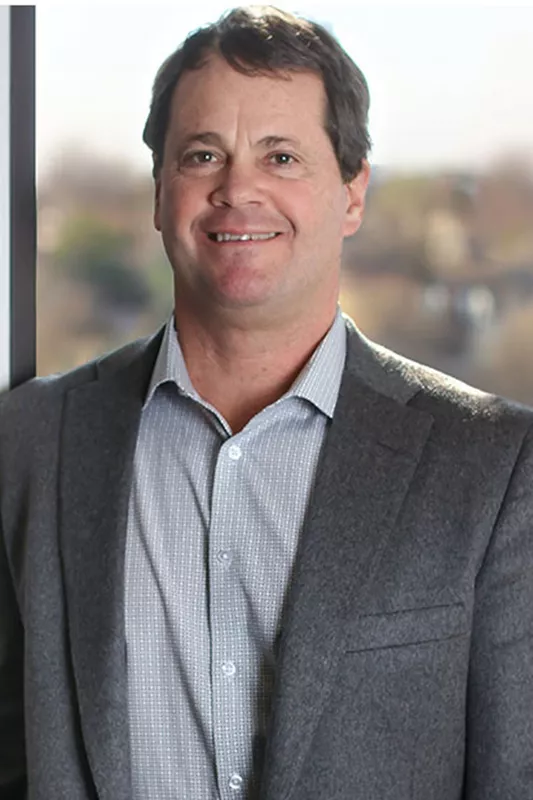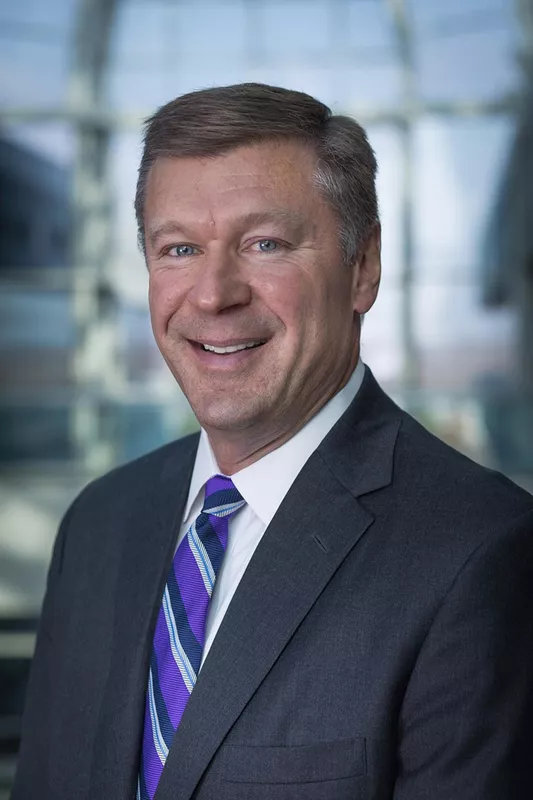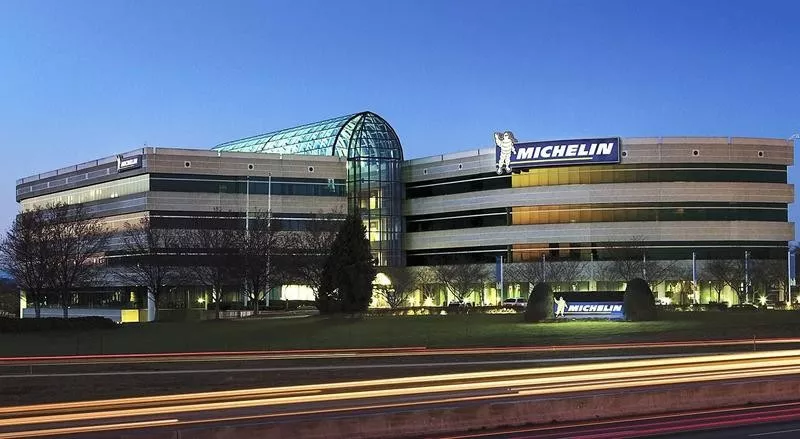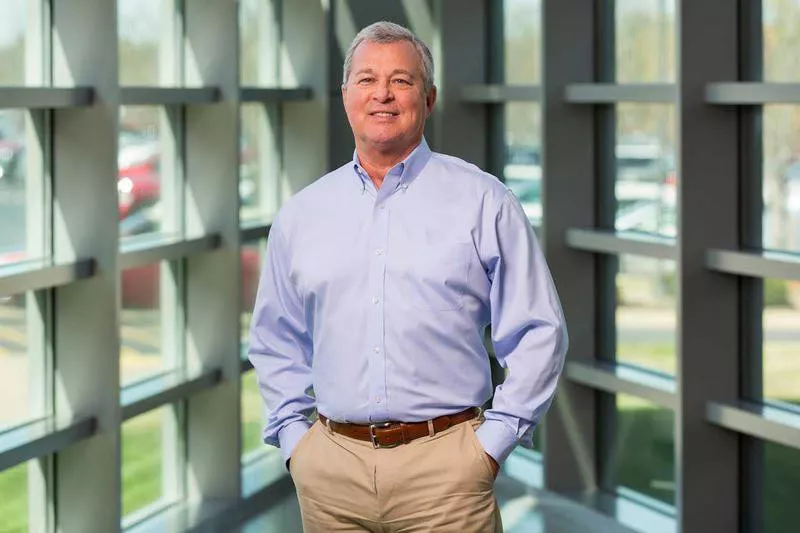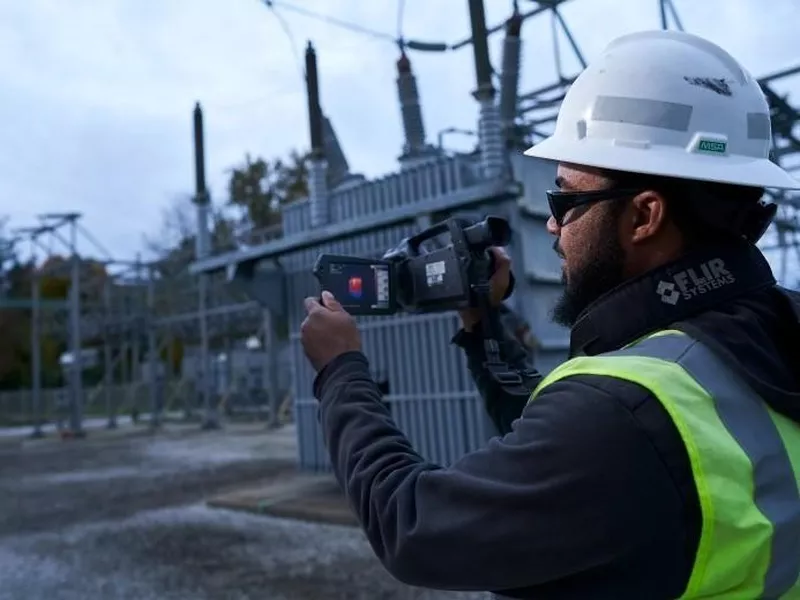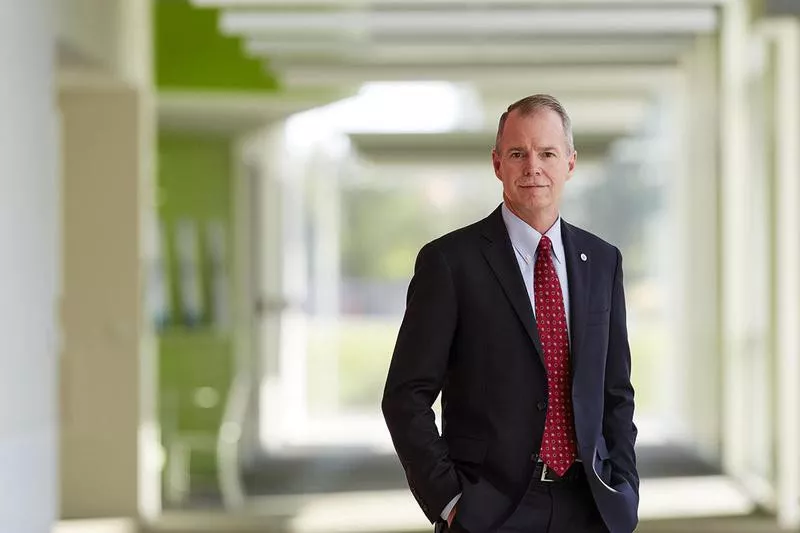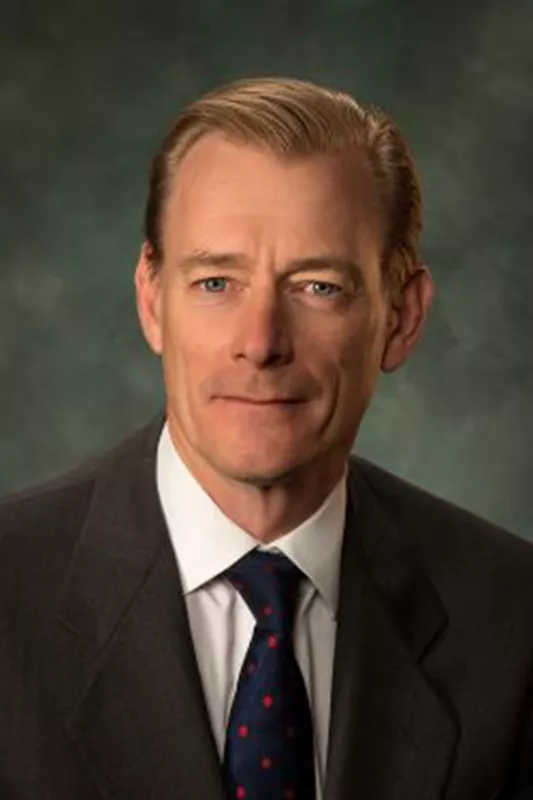When looking at the business with the highest annual revenue headquartered in each state, what stands out most is how many companies are not on the list. Plenty of household names made the cut, but many of the biggest businesses in the U.S. didn’t.
That’s because, for whatever reason, many of the country’s most valuable companies are clustered in states like Washington, California, New York and Texas. So don’t expect to find Google, Microsoft, JPMorgan Chase or Dell. They were eclipsed by Apple (pictured), Amazon, Verizon and ExxonMobil, respectively.
What you will find are plenty of energy companies and utilities, a few banks and tech powerhouses, and plenty of food distributors and grocery chains. We ranked these companies based on 2019 annual revenue, with sourcing from the Fortune 500 and 24/7 Wall St.
Alabama: Alabama Power
Headquarters: Birmingham
Industry: Utilities
Type: Subsidiary
Revenue: $6 billion
CEO: Mark Crosswhite (pictured)
Bottom Line: Alabama Power Company
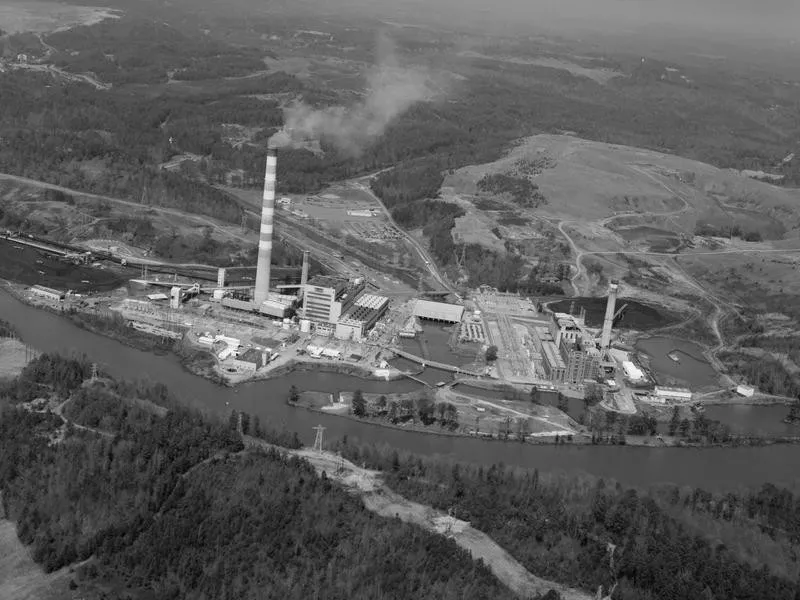
Jet Lowe / Library of Congress
The company serves 1.4 million customers in the southern two-thirds of Alabama.
It also operates appliance stores and is a subsidiary of the publicly traded Southern Company.
Pictured is a shot of the Gorgas Steam Plant in Walker County.
Alaska: Arctic Slope Regional Corporation
Headquarters: Barrow
Industry: Energy
Type: Private
Revenue: $3.4 billion
CEO: Rex A. Rock Sr.
Bottom Line: Arctic Slope Regional Corporation
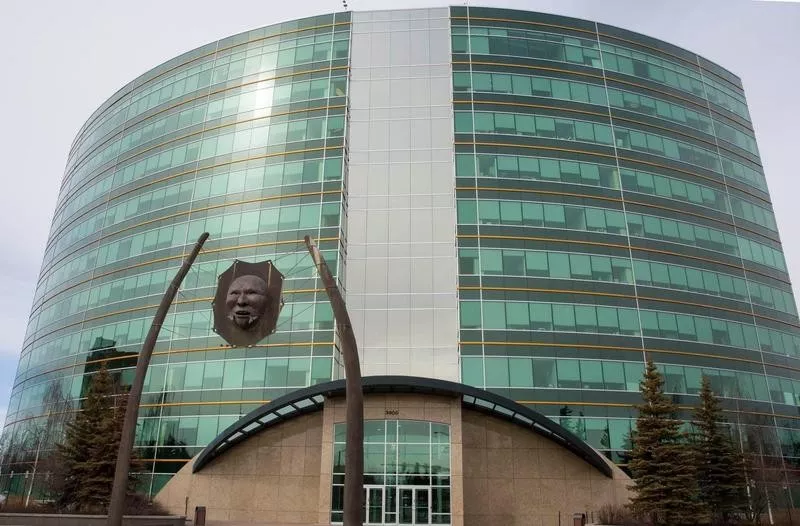
Arctic Slope Regional Corporation / Facebook
The oil, gas and mining company is owned by roughly 11,000 shareholders of Inupiat Eskimo descent.
That company structure was made possible thanks to the Alaska Native Claims Settlement Act of 1971, which was created to resolve aboriginal land claims in Alaska.
Arizona: Avnet
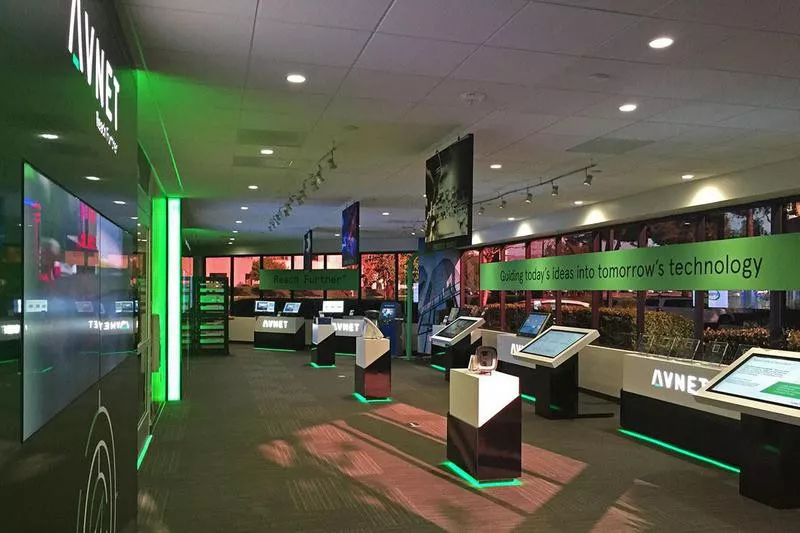
Avnet / Facebook
Headquarters: Phoenix
Industry: Electronics
Type: Public
Revenue: $19.52 billion
CEO (interim): Phillip R. Gallagher
Bottom Line: Avnet
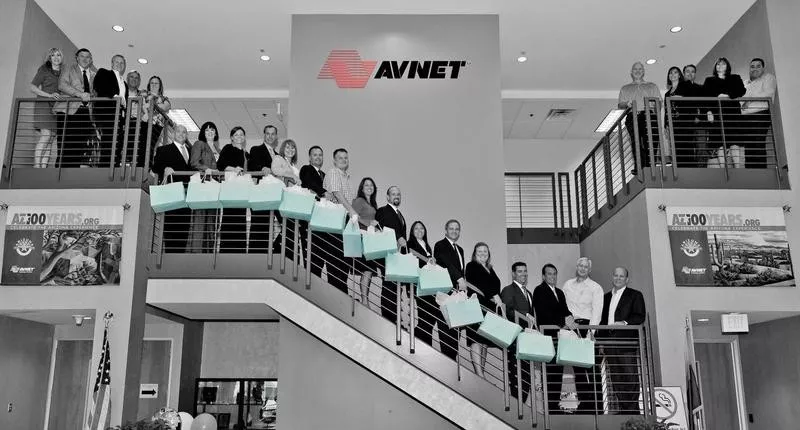
Avnet / Facebook
Avnet was founded in New York City in 1921 to sell radio equipment. It moved to Arizona in 1998, immediately becoming the state’s largest publicly traded company.
It sells electronics and components. On Aug. 3, 2020, Avnet announced that CEO Bill Amelio was leaving, and Phil Gallagher would take over on an interim basis.
Arkansas: Walmart
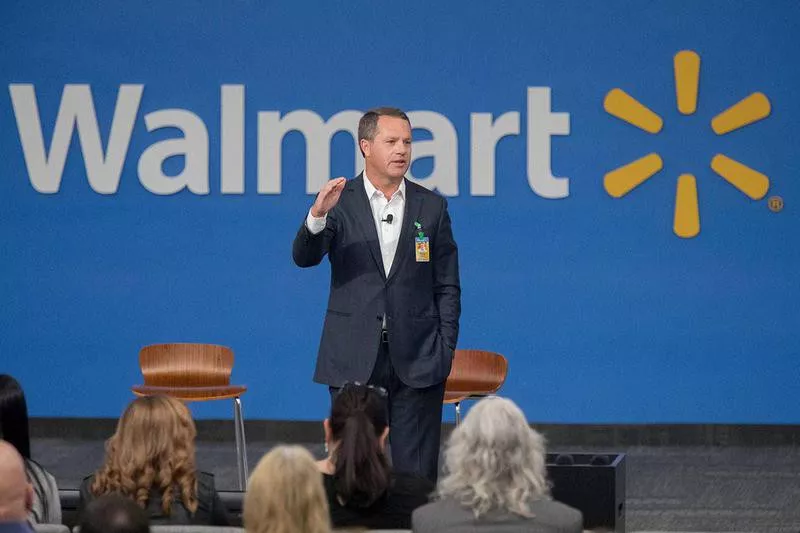
Gareth Patterson / AP Photo
Headquarters: Bentonville
Industry: Retail
Type: Public
Revenue: $524 billion
CEO: Doug McMillon (pictured)
Bottom Line: Walmart
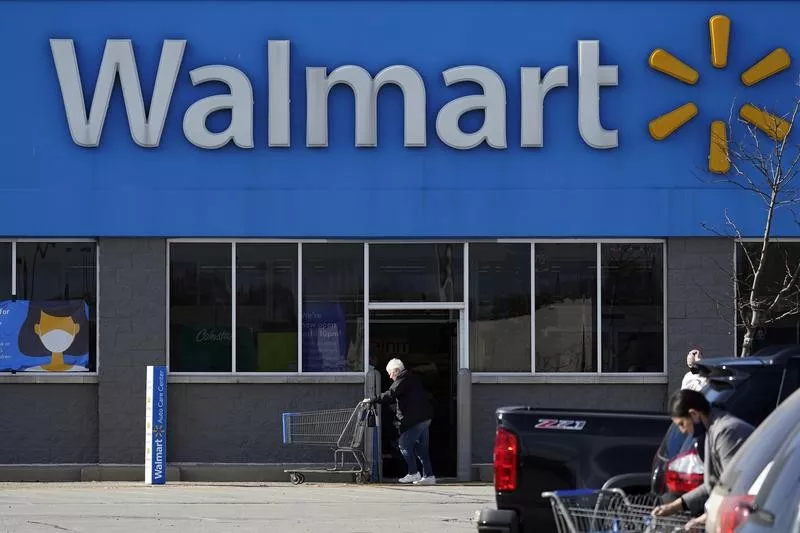
Nam Y. Huh / AP Photo
Walmart’s annual revenue makes it the largest company in the world. It operates more than 11,000 stores in 27 countries.
Although it’s a public company, the Walton family controls the largest stake, making it a family-owned business.
California: Apple
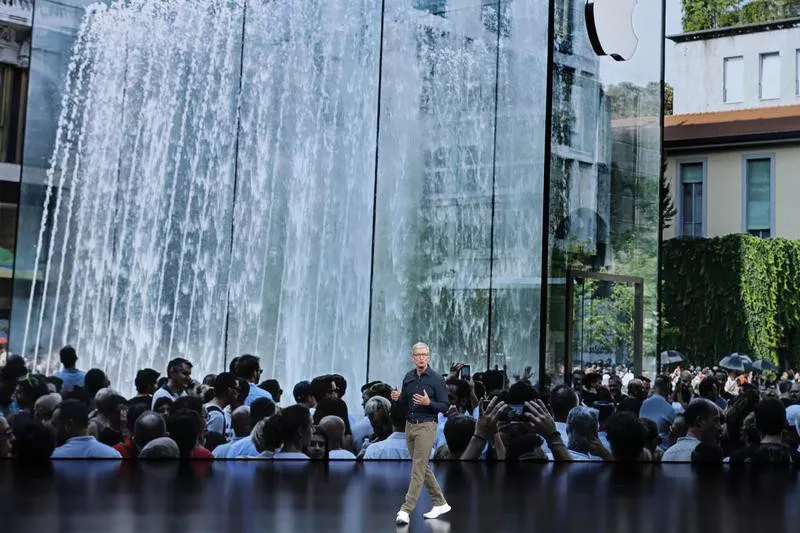
Marcio Jose Sanchez / AP Photo
Headquarters: Cupertino
Industry: Consumer electronics
Type: Public
Revenue: $260.2 billion
CEO: Tim Cook (pictured)
Bottom Line: Apple
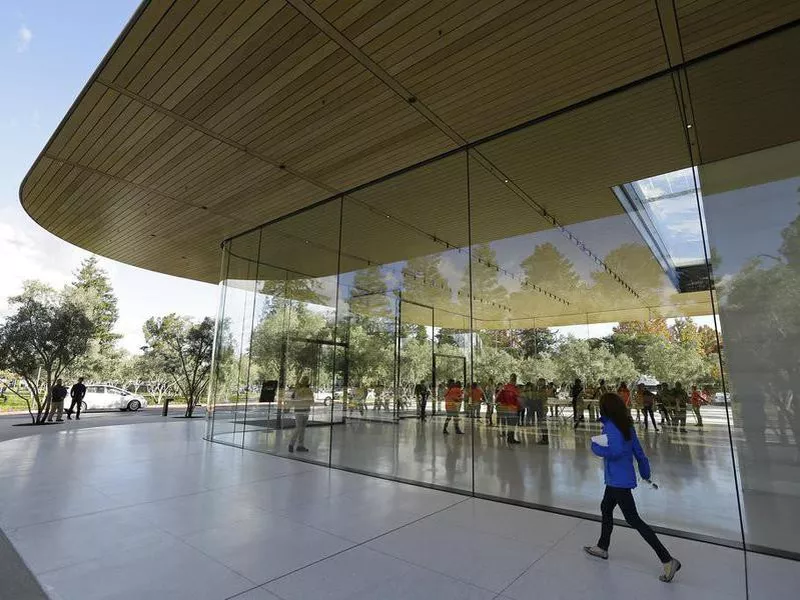
Eric Risberg / AP Photo
Apple is one of the five largest companies in the U.S. and one of the most influential makers of consumer electronics like computers, watches and smartphones.
The company famously started in the garage of co-founder Steve Jobs’ childhood home in Silicon Valley.
Like many companies in 2020, Apple had a bad Q3, losing $450 billion because of the pandemic and because iPhone sales were less than expected.
Colorado: Arrow Electronics
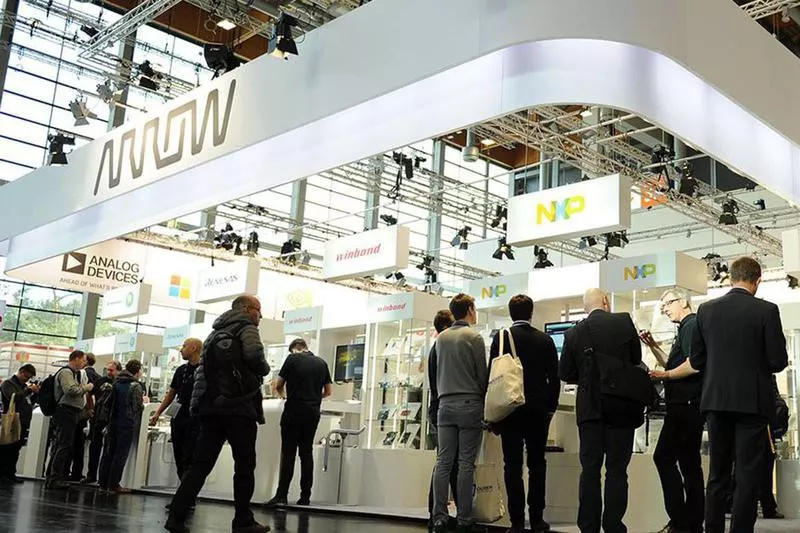
Arrow Electonics / Facebook
Headquarters: Centennial
Industry: Electronics
Type: Public
Revenue: $28.92 billion
CEO: Michael J. Long
Bottom Line: Arrow Electronics
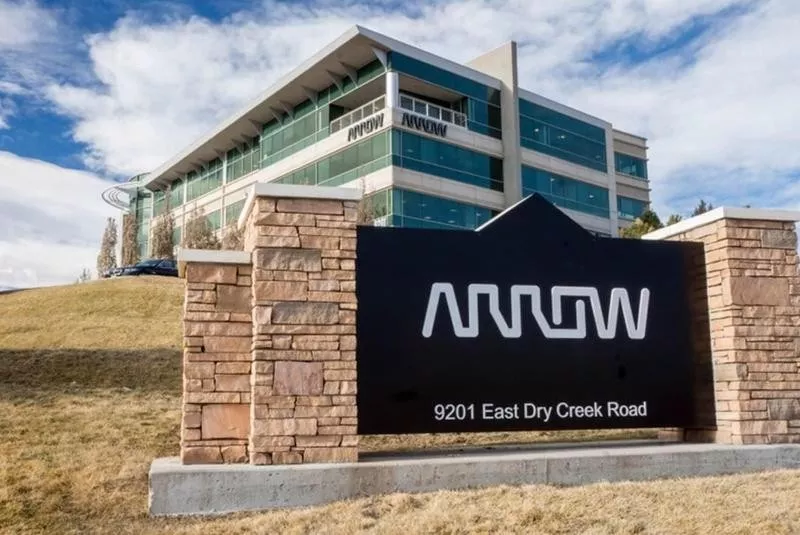
ArrowElectronics / Instagram
What started as a retail store selling radios in New York City in the 1930s grew into a massive distributor of electronics components and computer products.
As of 2019, Arrow ranked No. 109 on the Fortune 500 list.
It relocated to Colorado in 2011.
Connecticut: Aetna
Headquarters: Hartford
Industry: Health insurance
Type: Subsidiary
Revenue: $66.8 billion
CEO: Mark Bertolini
Bottom Line: Aetna
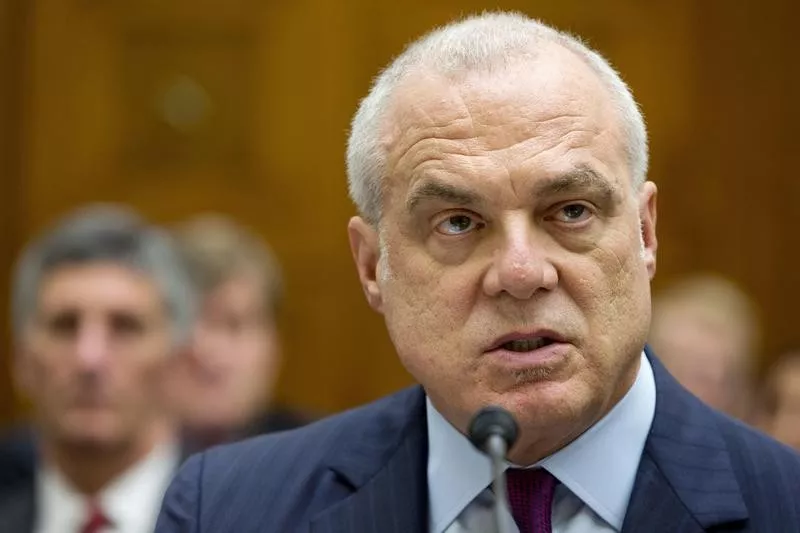
Jacquelyn Martin / AP Photo
Providing medical and dental insurance to nearly 40 million people, Aetna is one of the largest insurers in the U.S.
It became a subsidiary of the publicly traded CVS Health in 2018. Aetna is also one of 27 Fortune 1000 companies located in Connecticut.
As of 2017, CEO Mark Bertolini (pictured) is the highest-paid CEO in the state, taking home $18.7 million that year, according to the Associated Press.
Delaware: DuPont
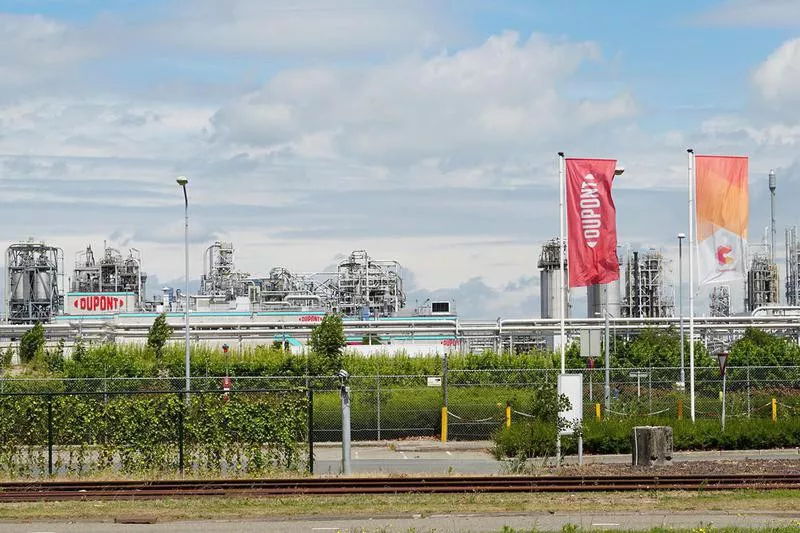
Getty Images
Headquarters: Wilmington
Industry: Chemicals
Type: Public
Revenue: $21.5 billion
CEO: Edward Breen
Bottom Line: DuPont
DuPont was the world’s largest chemical company when it merged with Dow Chemical in 2017.
In 2019, DowDuPont then spun off into three new, publicly traded companies focused on agriculture, materials science and specialty products, respectively.
The new DuPont is focused on special industry materials like personal protective equipment made from their patented Tyvek material, which the company is doubling production of because of the pandemic.
Florida: Publix Super Markets
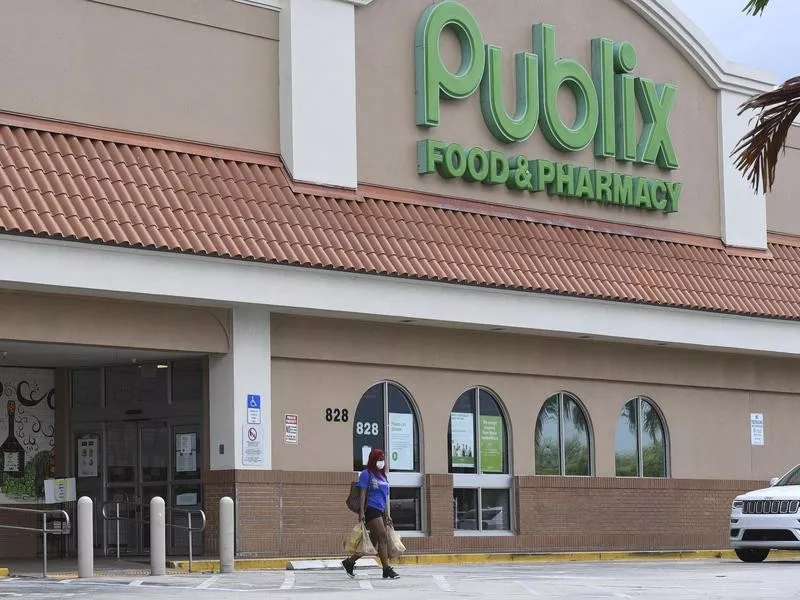
Media Punch / AP Photo
Headquarters: Lakeland
Industry: Food
Type: Private
Revenue: $38.46 billion
CEO: Todd Jones
Bottom Line: Publix Super Markets

Jeff Amy / AP Photo
Publix is an employee-owned supermarket chain founded in 1930 with over 1,000 locations throughout the South.
The corporation was ranked 39 in Fortune's 100 Best Companies to Work for 2018 list, citing the chain's tuition reimbursement program.
Georgia: The Home Depot
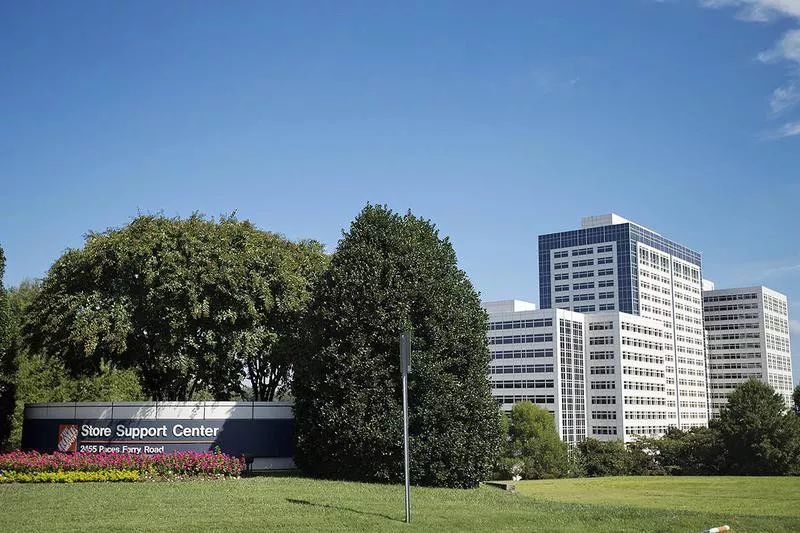
David Goldman / AP Photo
Headquarters: Atlanta
Industry: Retail
Type: Public
Revenue: $110.23 billion
CEO: Craig Menear
Bottom Line: The Home Depot
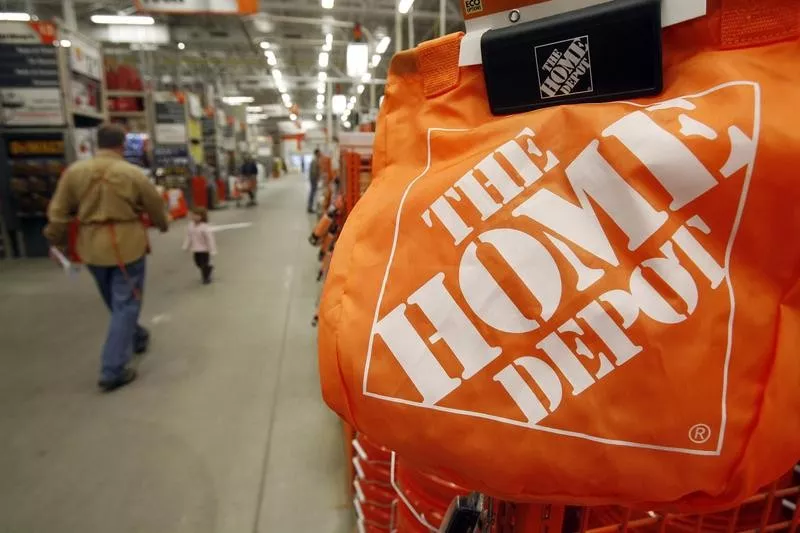
Toby Talbot / AP Photo
The largest home improvement retailer in the U.S. opened its first store in Atlanta in 1979 and has since grown to nearly 2,300 locations across North America.
Hawaii: Hawaiian Electric Industries

GreenBiz / YouTube
Headquarters: Honolulu
Industry: Utilities
Type: Public
Revenue: $2.87 billion
CEO: Constance H. Lau (pictured)
Bottom Line: Hawaiian Electric Industries
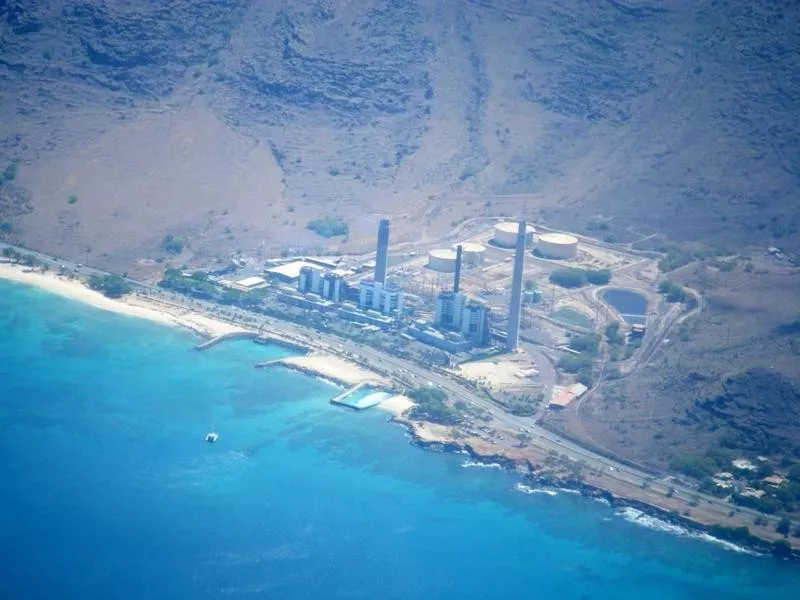
Travis Thurston / Wikipedia
The utility supplies every Hawaiian island except Kauai with electricity, and some 20,000 state residents are shareholders.
Hawaiian Electric is also pushing an effort to have the majority of Hawaii automobiles be electric by 2045.
Idaho: Albertsons Companies
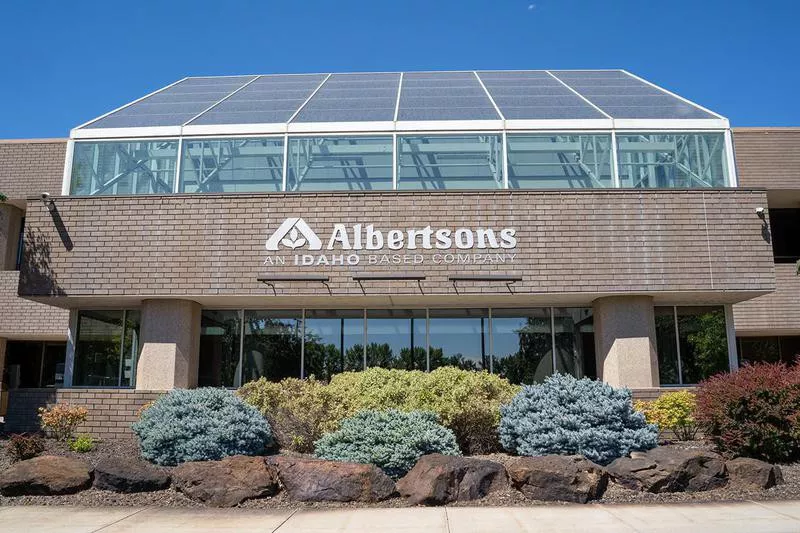
Getty Images
Headquarters: Boise
Industry: Grocery
Type: Private
Revenue: $60.53 billion
CEO: Vivek Sankaran
Bottom Line: Albertsons Companies

Mark J. Terrill / AP Photo
The grocery chain operates more than 2,200 stores nationwide and employs 267,000 people. It became the second-largest grocery chain in the U.S. in 2014 (after Kroger) when it purchased Safeway.
In 2019, the company appointed Vivek Sankaran as its new president and CEO.
Illinois: Walgreens Boots Alliance
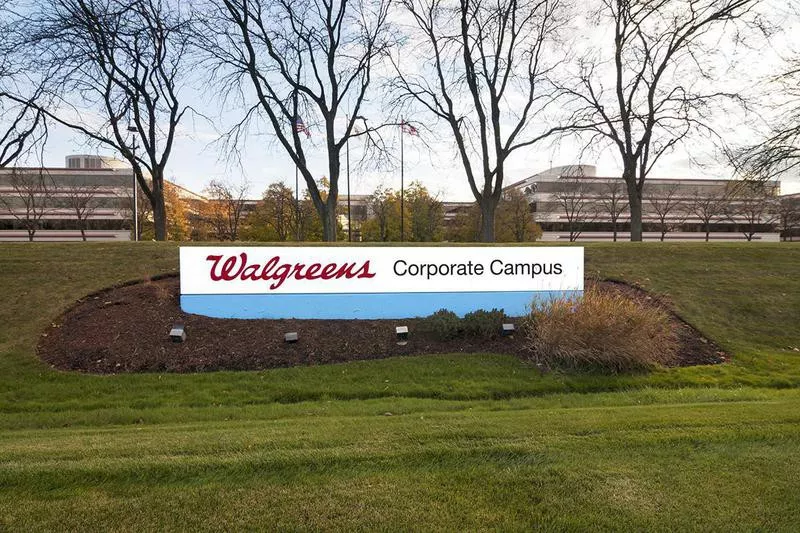
Getty Images
Headquarters: Deerfield
Industry: Retail pharmacy
Type: Public
Revenue: $136.86 billion
CEO: Stefano Pessina
Bottom Line: Walgreens Boots Alliance
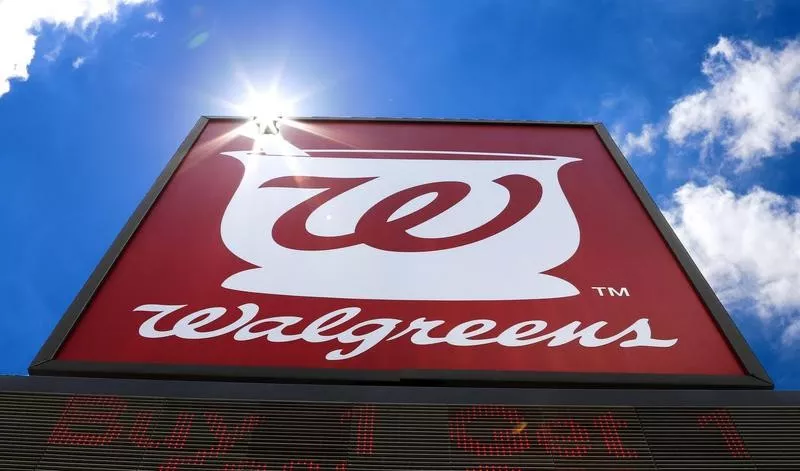
Gene J. Puskar / AP Photo
The holding company owns chains such as Walgreens, Duane Reade and Boots, along with other pharmaceutical manufacturers, wholesalers and distributors.
With its 2014 buyout of Europe-based Boots, its footprint spans 11 countries and over 18,000 stores.
Indiana: Anthem

Michael Conroy / AP Photo
Headquarters: Indianapolis
Industry: Health insurance
Type: Public
Revenue: $104.2 billion
CEO: Gail K. Boudreaux
Bottom Line: Anthem
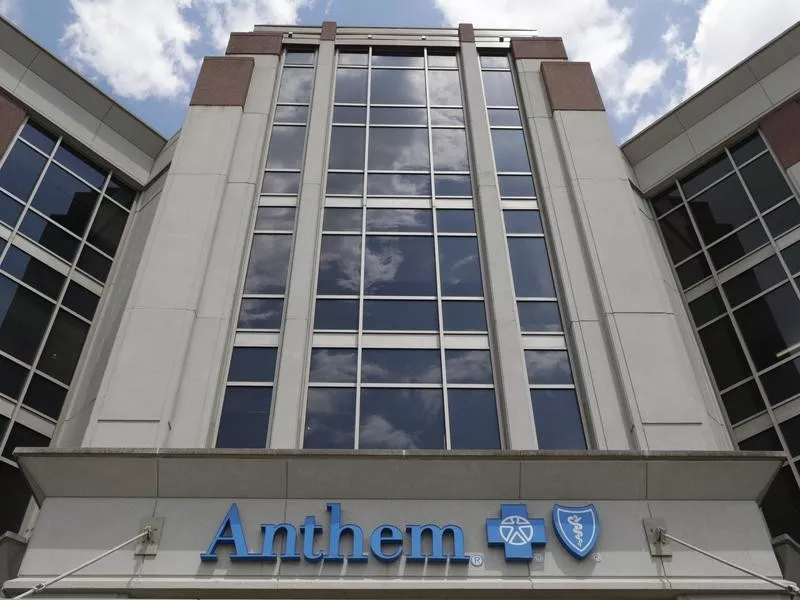
Michael Conroy / AP Photo
With about 40 million members, Anthem is the nation’s largest for-profit health insurance provider.
It was formed through the 2004 merger of WellPoint and Anthem.
Iowa: Berkshire Hathaway Energy
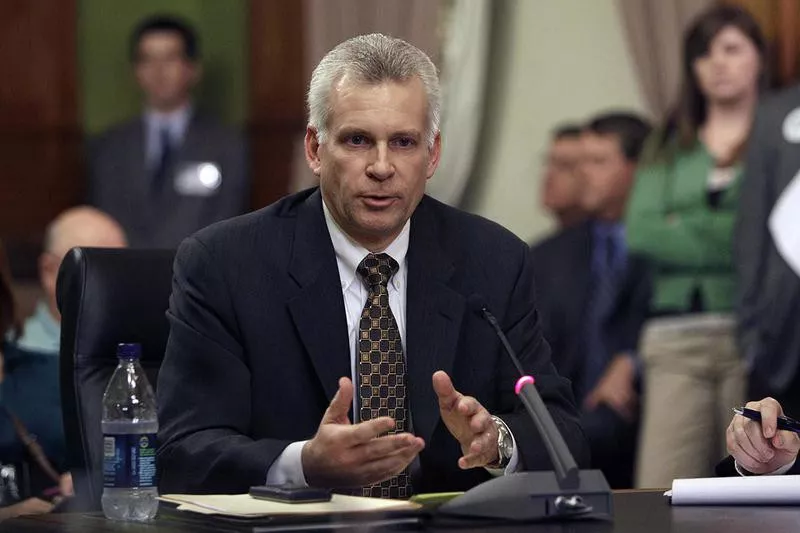
Charlie Neibergall / AP Photo
Headquarters: Des Moines
Industry: Energy
Type: Public
Revenue: $19.8 billion
CEO: William Fehrman (pictured)
Bottom Line: Berkshire Hathaway Energy
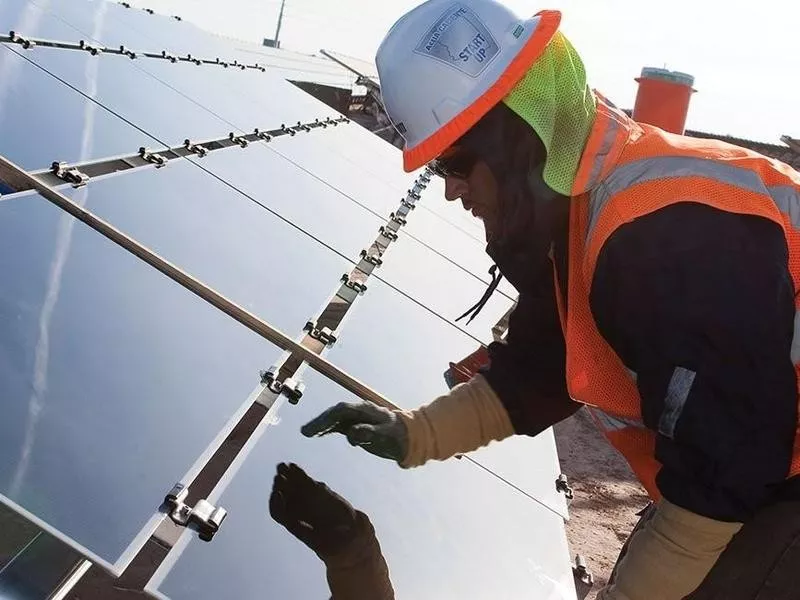
Berkshire Hathaway Energy Renewables / Facebook
A subsidiary of Warren Buffett’s Berkshire Hathaway, the utility provides energy to nearly 12 million customers across 18 states.
Kansas: Koch Industries
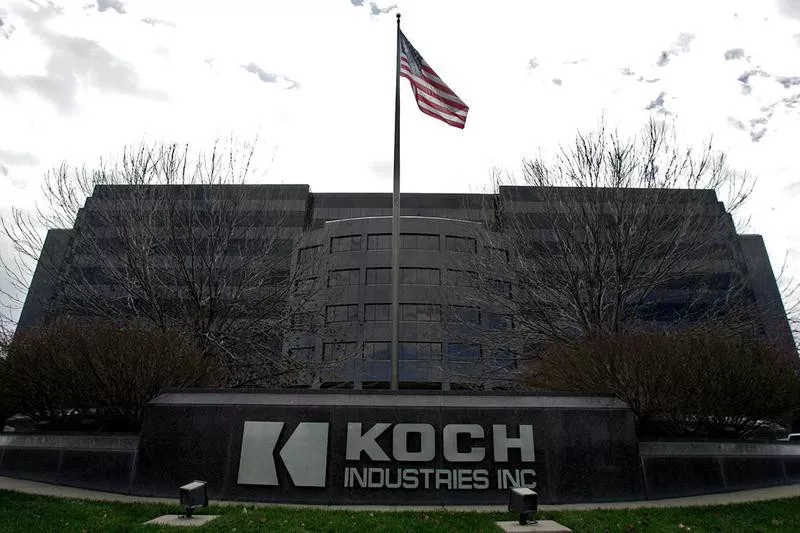
Larry W. Smith / AP Photo
Headquarters: Wichita
Industry: Conglomerate
Type: Private
Revenue: $110.0 billion
CEO: Charles Koch
Bottom Line: Koch Industries
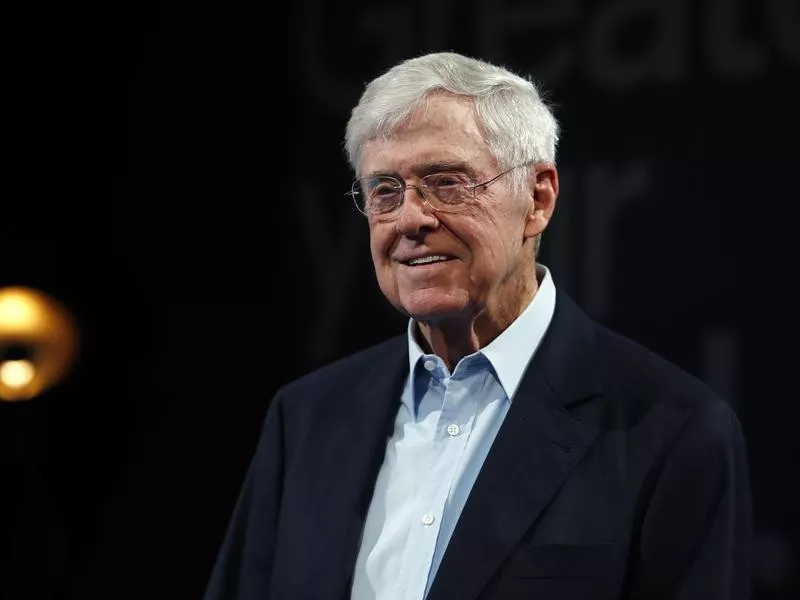
David Zalubowski / AP Photo
One of the world’s largest privately held companies, Koch Industries has subsidiaries that span many industries, including petroleum, chemicals, energy, commodities, investing, manufacturing and refining.
It employs 120,000 people across 60 countries, with half its business located in the U.S.
Kentucky: Humana
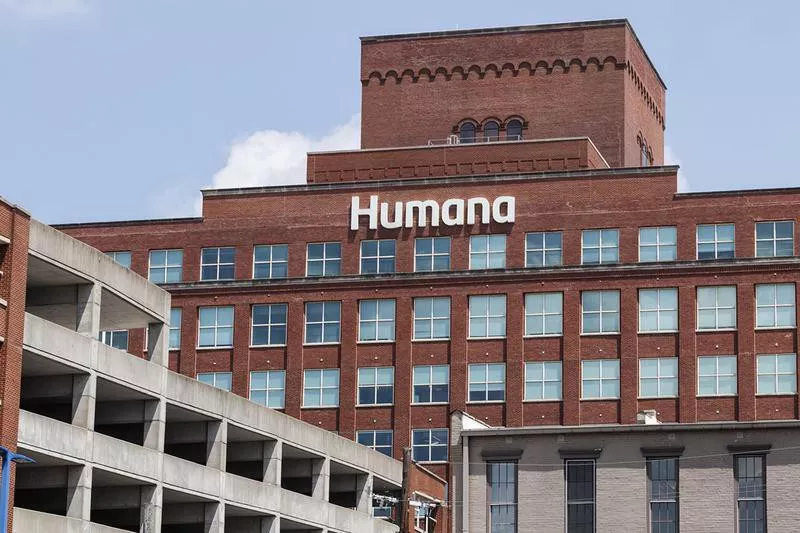
Getty Images
Headquarters: Louisville
Industry: Health insurance
Type: Public
Revenue: $64.88 billion
CEO: Bruce D. Broussard
Bottom Line: Humana
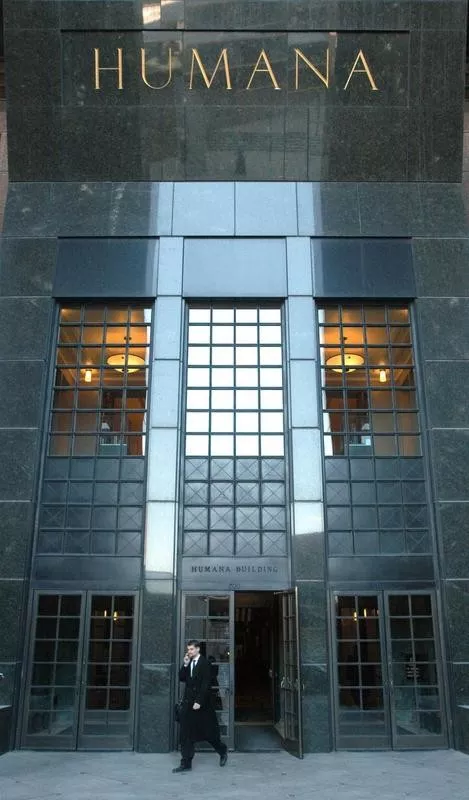
Brian Bohannon / AP Photo
With 13 million customers, Humana is one of the largest health insurance providers in the U.S.
Aetna nearly acquired it in 2015 for $37 billion, but a court ruled the deal to be anti-competitive.
Humana gained $8 billion in revenue from 2018 to 2019.
Louisiana: Lumen Technologies
Headquarters: Monroe
Industry: Telecom
Type: Public
Revenue: $22.4 billion
CEO: Jeffrey K. Storey (pictured)
Bottom Line: Lumen Technologies
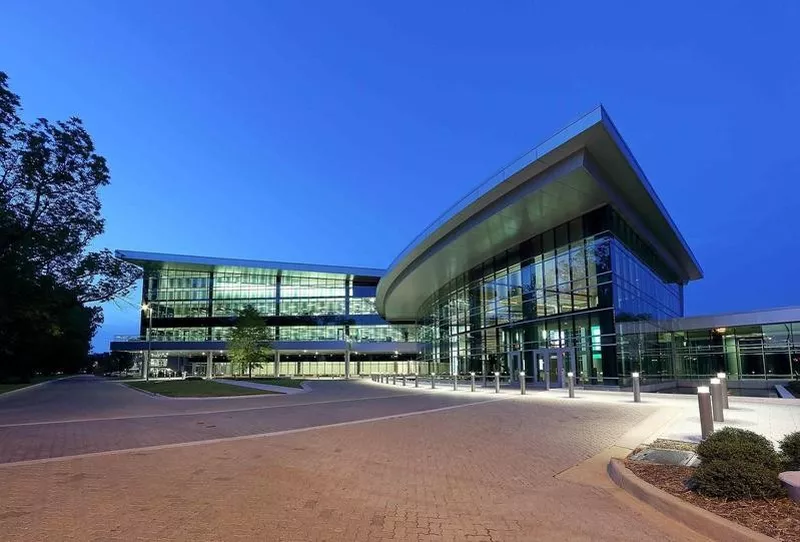
Redstarlost / Wikipedia
Formerly known as CenturyLink, Lumen is an S&P 500 company that provides communications, cloud and network services, voice and broadband internet, among other services.
Maine: Hannaford Bros.

Joel Page / AP Photo
Headquarters: Scarborough
Industry: Grocery
Type: Subsidiary
Revenue: $3.9 billion
CEO: Mike Vail
Bottom Line: Hannaford Bros

Larry Crowe / AP Photo
Hannaford is a subsidiary of Ahold Delhaize of the Netherlands, following the 2016 merger of Hannaford, Delhaize of Florida and Holland’s Ahold.
It operates nearly 200 grocery stores throughout New England and upstate New York.
Maryland: Lockheed Martin
Headquarters: Bethesda
Industry: Defense
Type: Public
Revenue: $59.8 billion
CEO: James D. Taiclet (pictured)
Bottom Line: Lockheed Martin
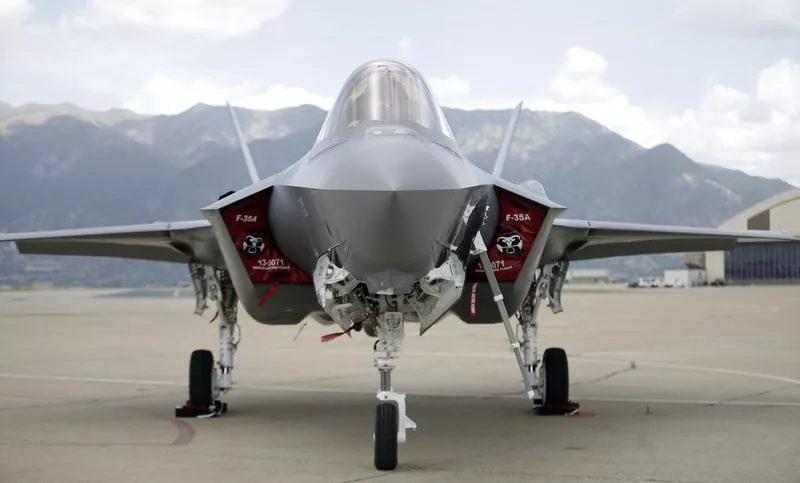
Rick Bowmer / AP Photo
Employing over 100,000 people, Lockheed Martin is one of the world’s largest aerospace, defense, security and technologies companies.
It’s perhaps best known for building fighter jets for the U.S. military.
Massachusetts: General Electric
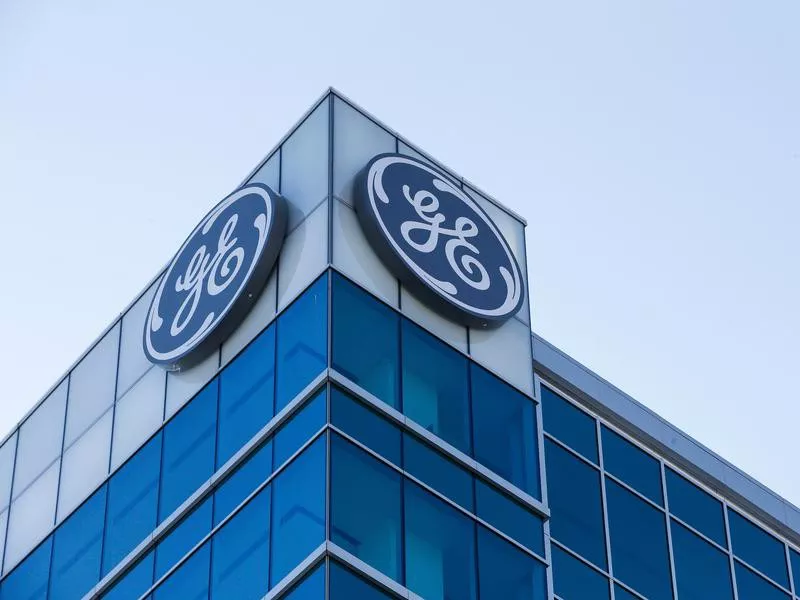
John Minchillo / AP Photo
Headquarters: Boston
Industry: Conglomerate
Type: Public
Revenue: $95.2 billion
CEO: H. Lawrence Culp, Jr.
Bottom Line: General Electric
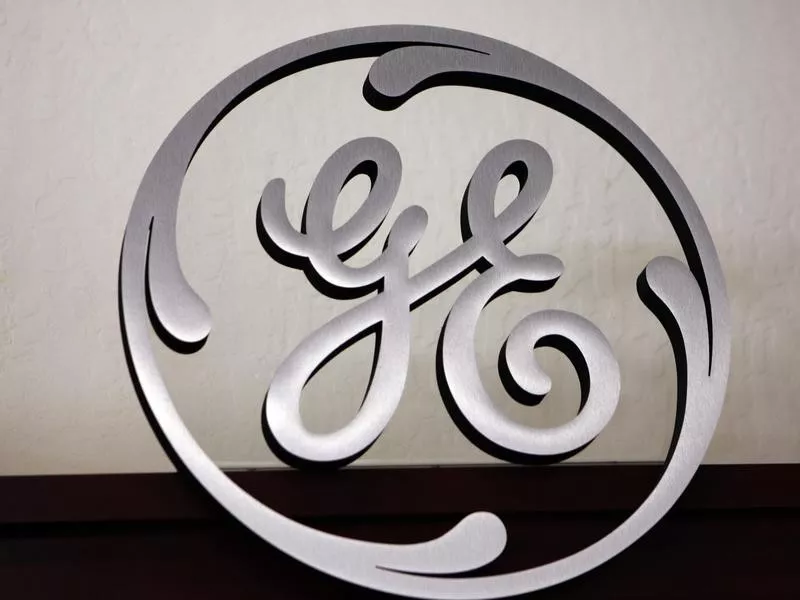
Paul Sakuma / AP Photo
GE is most associated with lighting, but the conglomerate also has financial stakes in aviation, healthcare, power, renewable energy, venture capital, and oil and gas.
GE took a large hit in its revenue due to the pandemic, losing about 21 percent of its revenue in 2020 compared to 2019.
Michigan: Ford Motor Company
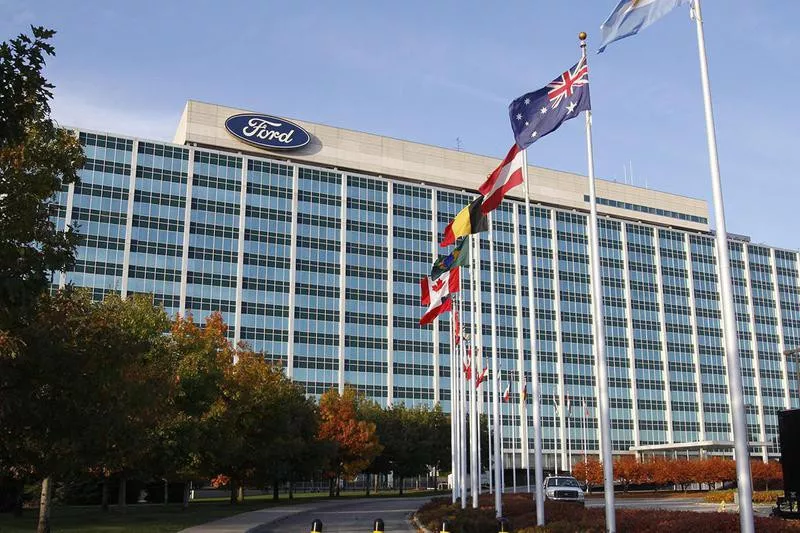
Carlos Osorio / AP Photo
Headquarters: Dearborn
Industry: Auto manufacturing
Type: Public
Revenue: $155.9 billion
CEO: Jim Farley
Bottom Line: Ford Motor Company
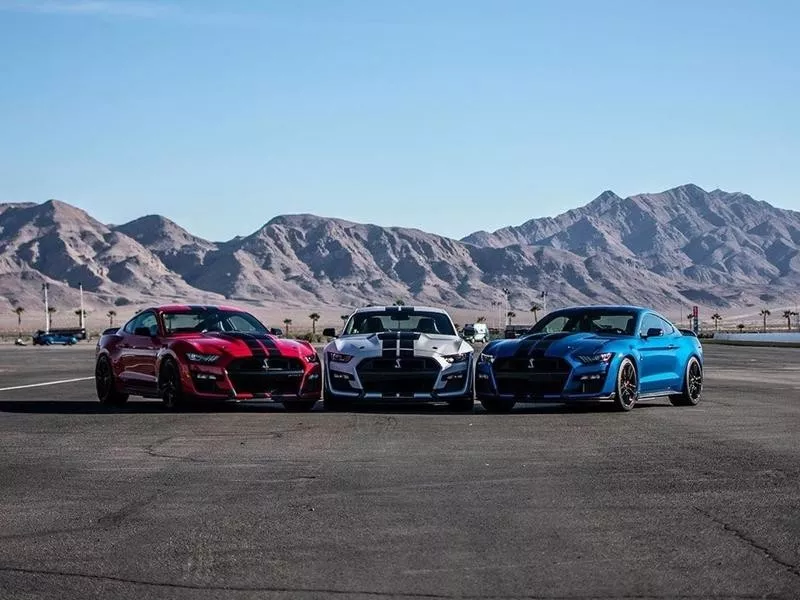
Ford / Instagram
Automobiles still dominate the Detroit area’s corporate landscape, and Ford is the largest in terms of revenue.
It’s also the fifth-largest automaker in the world. And through its Class B shares, the Ford family still has 40 percent voting rights in the company.
Jim Farley replaced Jim Hackett as CEO in October 2020.
Minnesota: UnitedHealth Group Inc
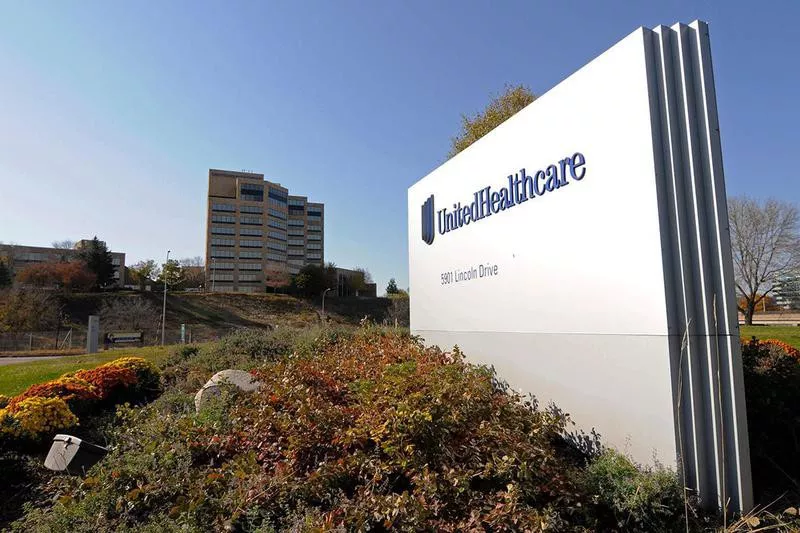
Jim Mone / AP Photo
Headquarters: Minnetonka
Industry: Healthcare
Type: Public
Revenue: $242.15 billion
CEO: David S. Wichmann
Bottom Line: UnitedHealth Group
The world’s largest healthcare company by revenue, UnitedHealth serves 115 million customers with healthcare products and insurance.
UnitedHealth Group ranks seventh on the Fortune 500.
Mississippi: Sanderson Farms
Headquarters: Laurel
Industry: Poultry
Type: Public
Revenue: $3.4 billion
CEO: Joe F. Sanderson Jr.
Bottom Line: Sanderson Farms
Processing 9.375 million chickens per week, Sanderson is the nation’s third-largest poultry producer.
It’s also the only company in Mississippi on the Fortune 1000 list.
Missouri: Express Scripts Holding Company
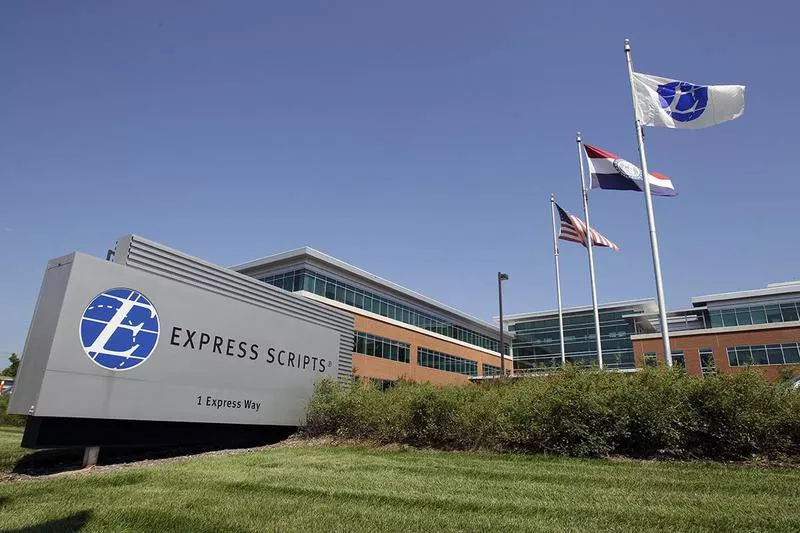
Jeff Roberson / AP Photo
Headquarters: St. Louis
Industry: Pharmaceuticals
Type: Subsidiary
Revenue: $100.1 billion
President: Tim Wentworth
Bottom Line: Express Scripts Holding Company

Wilfredo Lee / AP Photo
Parent company Cigna bought Express Scripts, the largest pharmacy benefit management company in the U.S., in 2018 for $67 billion.
One of its biggest clients is the Department of Defense's Tricare program serving active and retired military personnel.
Montana: Glacier Bancorp
Headquarters: Kalispell
Industry: Banking
Type: Public
Revenue: $587.8 million
CEO: Randall M. Chesler (pictured)
Bottom Line: Glacier Bancorp
Providing banking services to individuals, small- to medium-size businesses, community organizations and public entities, Glacier has locations throughout the Mountain West, Washington and Arizona.
Nebraska: Berkshire Hathaway
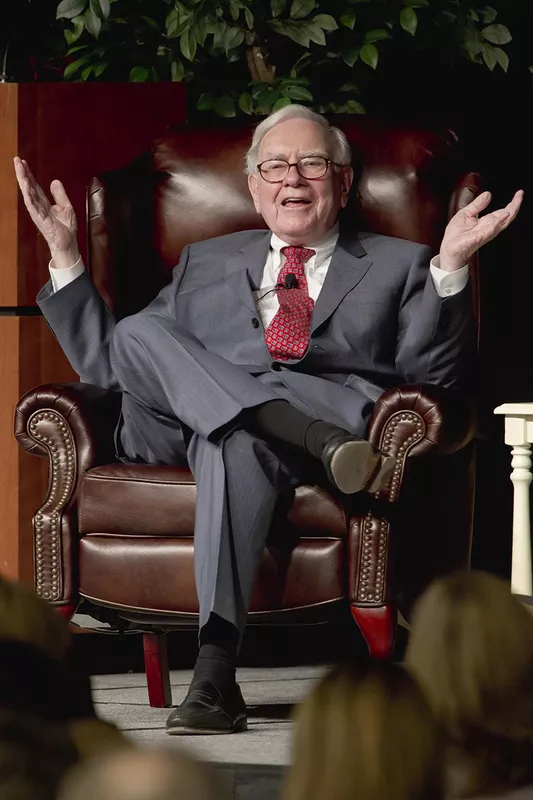
Nati Harnik / AP Photo
Headquarters: Omaha
Industry: Conglomerate
Type: Public
Revenue: $254.6 billion
CEO: Warren Buffett (pictured)
Bottom Line: Berkshire Hathaway
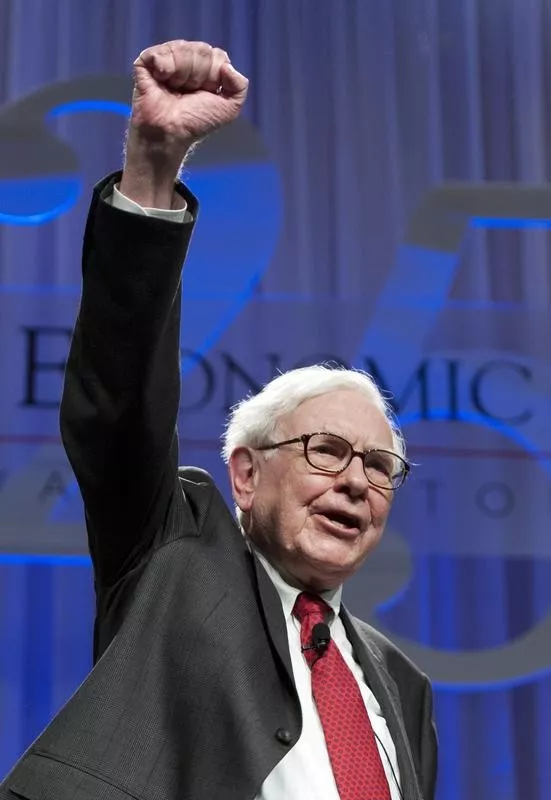
Cliff Owen / AP Photo
Warren Buffett’s multinational conglomerate has a stake in or wholly owns numerous familiar companies, including GEICO, Duracell, Fruit of the Loom, Kraft Heinz, American Express, Wells Fargo, Coca-Cola, Bank of America and Apple.
It’s the third-largest public company in the world, and it has realized an average 19 percent annual return to shareholders since 1965.
Berkshire is currently sixth on the Fortune 500.
Nevada: Las Vegas Sands Corporation
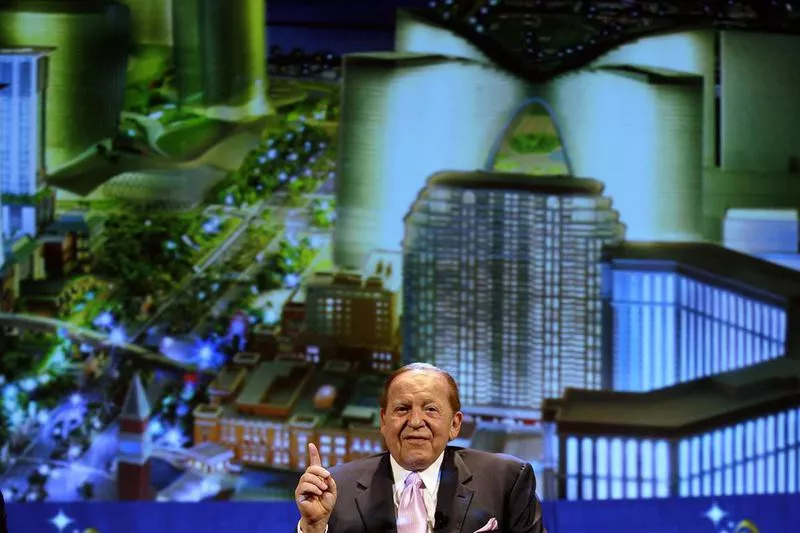
Kin Cheung / AP Photo
Headquarters: Las Vegas
Industry: Casinos and resorts
Type: Public
Revenue: $13.7 billion
CEO: Sheldon Adelson (pictured)
Bottom Line: Las Vegas Sands Corporation

Jae C. Hong / AP Photo
The world’s largest casino company owns The Venetian and The Palazzo in Las Vegas, along with several Asian properties — Marina Bay Sands in Singapore, and Macao’s Sands Macao, Sands Cotai Central and The Venetian Macao, among others.
But the pandemic hit Las Vegas Sands hard. The company lost 82 percent of its net revenue in Q3 in 2020 compared to the same time last year.
The $13.7 billion in revenue is for 2019. It will likely be much less for 2020.
New Hampshire: C&S Wholesale Grocers
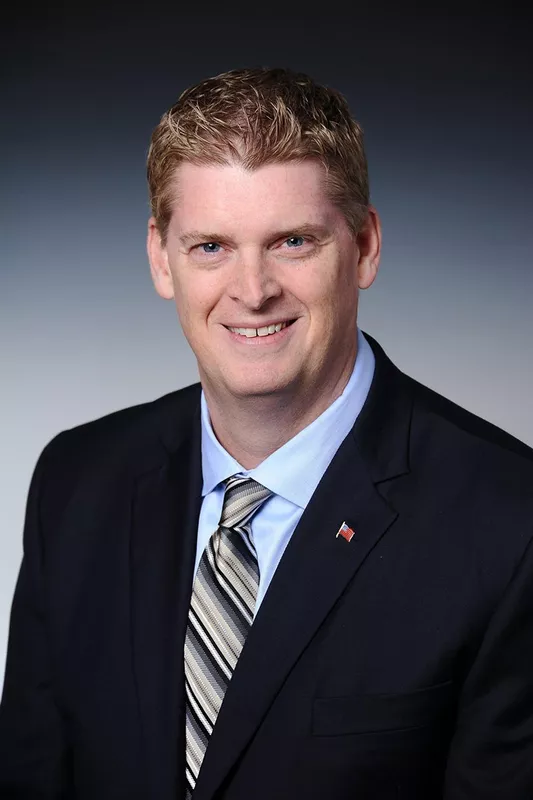
C&S Wholesale Grocers / Facebook
Headquarters: Keene
Industry: Grocery
Type: Private
Revenue: $27 billion
CEO: Mike Duffy (pictured)
Bottom Line: C&S Wholesale Grocers
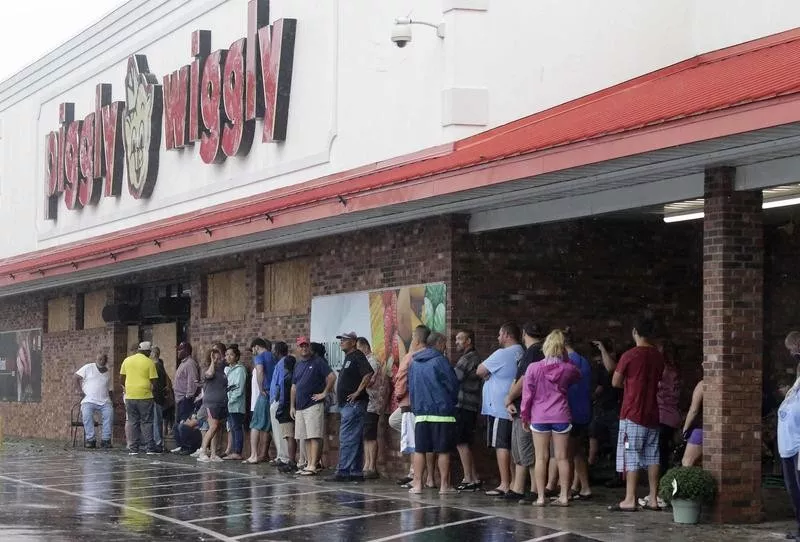
Tom Copeland / AP Photo
America’s largest wholesale grocery distributor has 17,000 associates in 16 states, with storage of 15 million-plus square feet.
Major clients include Stop & Shop, Safeway, Winn-Dixie, and Target.
It also owns the Piggly Wiggly brand.
New Jersey: Johnson & Johnson
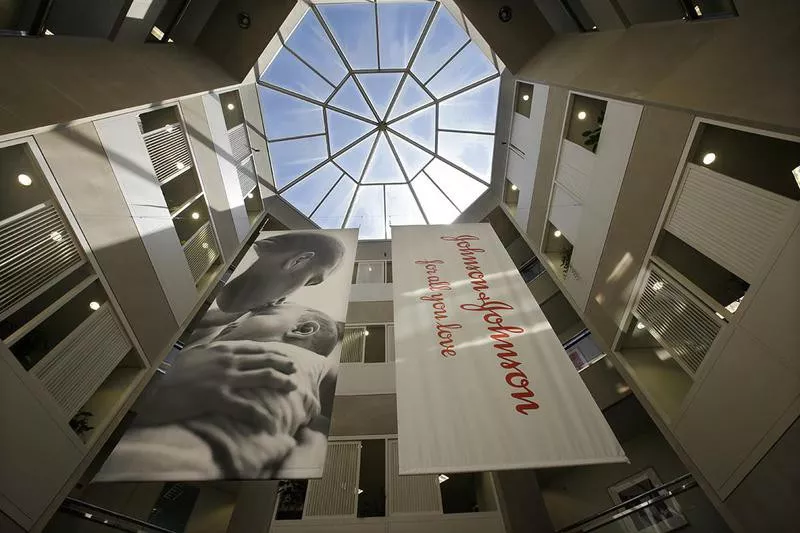
Mel Evans / AP Photo
Headquarters: New Brunswick
Industry: Consumer products
Type: Public
Revenue: $82.06 billion
CEO: Alex Gorsky
Bottom Line: Johnson & Johnson
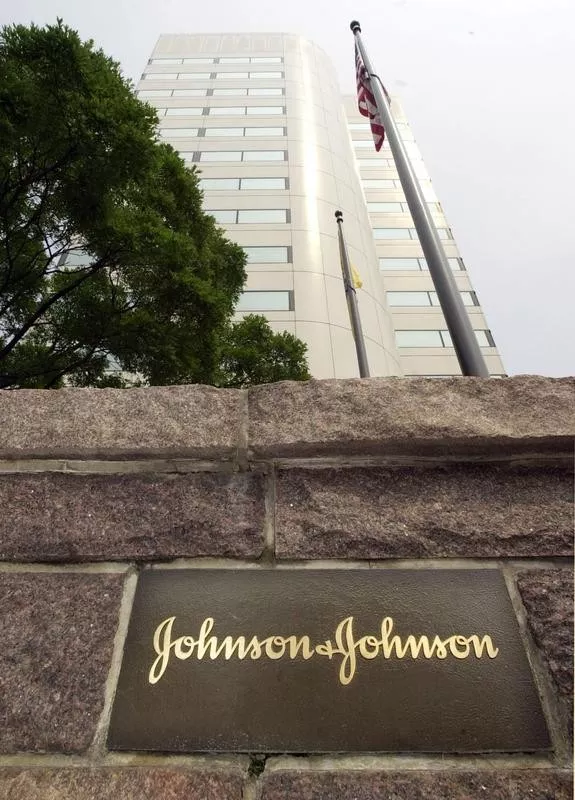
Daniel Hulshizer / AP Photo
One of the most valuable companies in the world, Johnson & Johnson controls roughly 250 subsidiaries that operate in 60 countries and sell products in more than 175 countries.
Brands include household names such as Band-Aid, Tylenol, Neutrogena and Acuvue.
New Mexico: PNM Resources
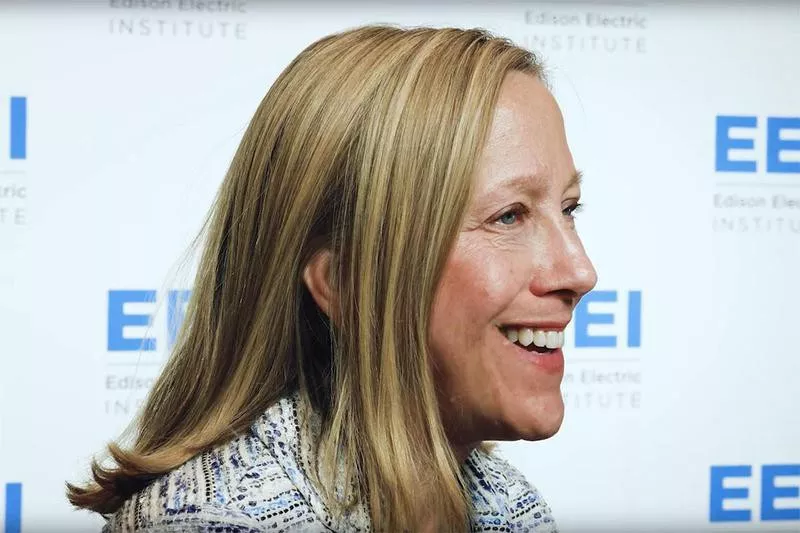
Edison Electric Institute / YouTube
Headquarters: Albuquerque
Industry: Utilities
Type: Public
Revenue: $1.5 billion
CEO: Pat Vincent-Collawn (pictured)
Bottom Line: PNM Resources
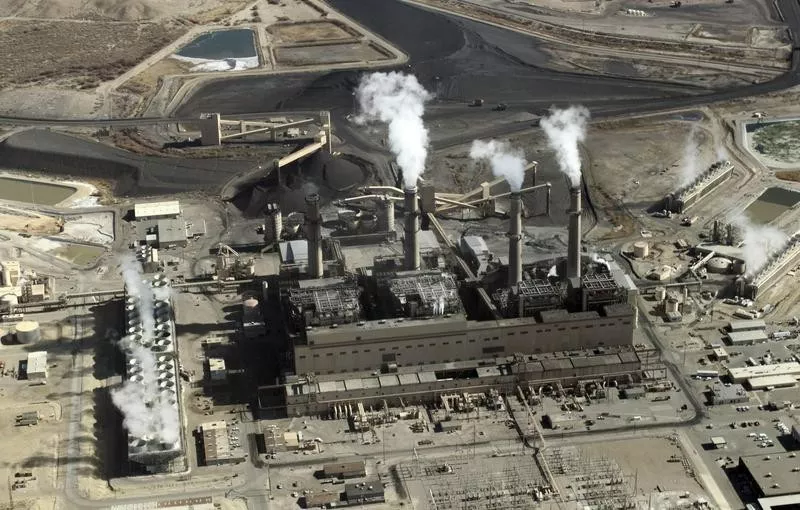
Susan Montoya Bryan / AP Photo
The energy holding company serves nearly 500,000 homes and businesses in northern New Mexico and West Texas.
Its primary holdings are Public Service Company of New Mexico (PNM) and Texas-New Mexico Power Co. (TNMP).
New York: Verizon Communications
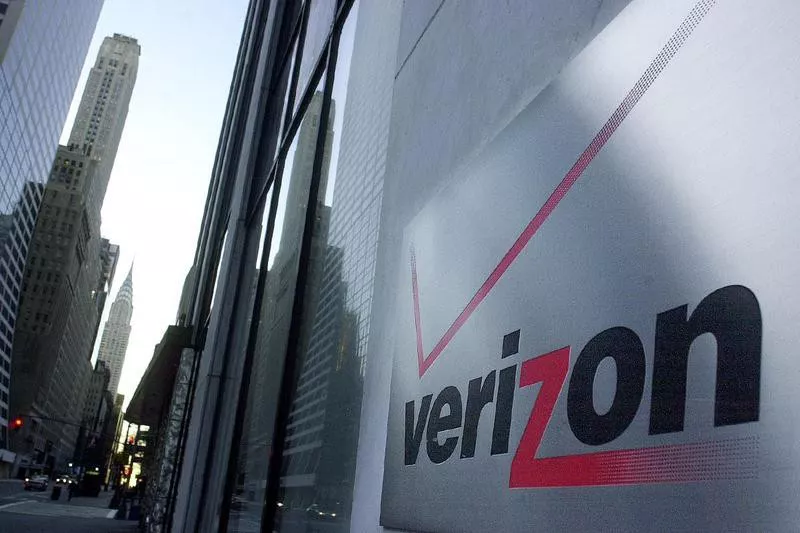
Mark Lennihan / AP Photo
Headquarters: New York City
Industry: Telecom
Type: Public
Revenue: $131.86 billion
CEO: Hans Vestberg
Bottom Line: Verizon Communications
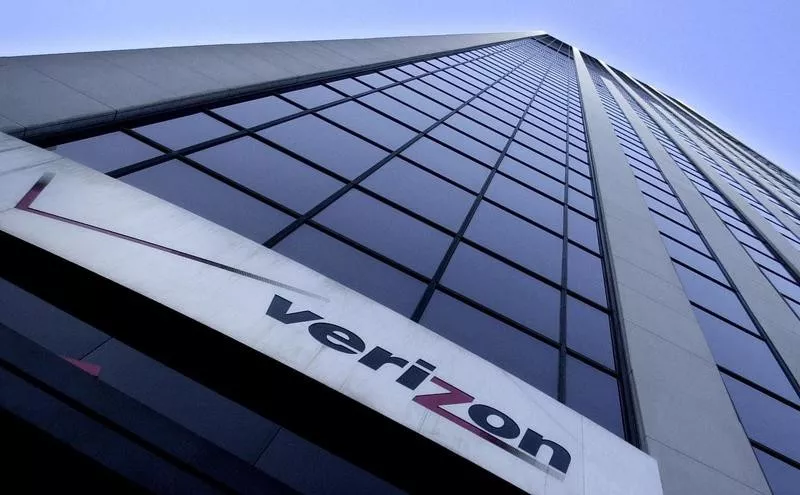
Mark Lennihan / AP Photo
Verizon Communications is a conglomerate that operates Verizon Media, the result of the 2015 and 2017 purchases, respectively, of AOL and Yahoo, and Verizon Wireless, which is the second-largest cellphone service provider in the U.S. with 153 million customers.
North Carolina: Bank of America
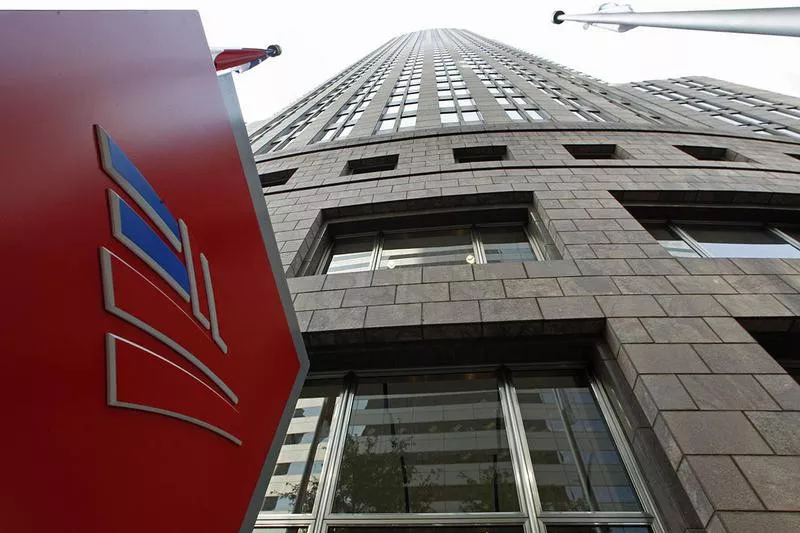
Chuck Burton / AP Photo
Headquarters: Charlotte
Industry: Banking
Type: Public
Revenue: $99.58 billion
CEO: Brian Thomas Moynihan
Bottom Line: Bank of America
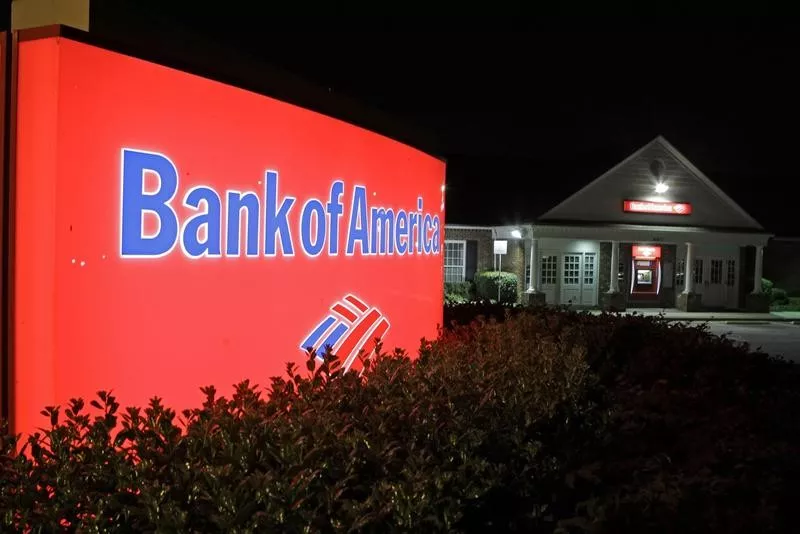
Chuck Burton / AP Photo
As one of the Big Four U.S. banks (along with Citigroup, Wells Fargo and JPMorgan Chase), Bank of America services 10.73 percent of all American bank deposits.
It was originally founded in San Francisco in 1904 as the Bank of Italy.
The bank declined year-over-year by 13 percent for Q3 2020.
North Dakota: MDU Resources Group
Headquarters: Bismarck
Industry: Electric, Natural Gas, Construction
Type: Public
Revenue: $5.34 billion
CEO: David L. Goodin
Bottom Line: MDU Resources Group
MDU operates in three industries, providing electricity and natural gas to utilities that serve 1.1 million customers.
It operates natural gas pipelines in the Rocky Mountains and northern Great Plains, mining for sand and gravel materials like cement and asphalt.
Ohio: Cardinal Health

Kiichiro Sato / AP Photo
Headquarters: Dublin
Industry: Healthcare
Type: Public
Revenue: $145.5 billion
CEO: Mike Kaufmann
Bottom Line: Cardinal Health
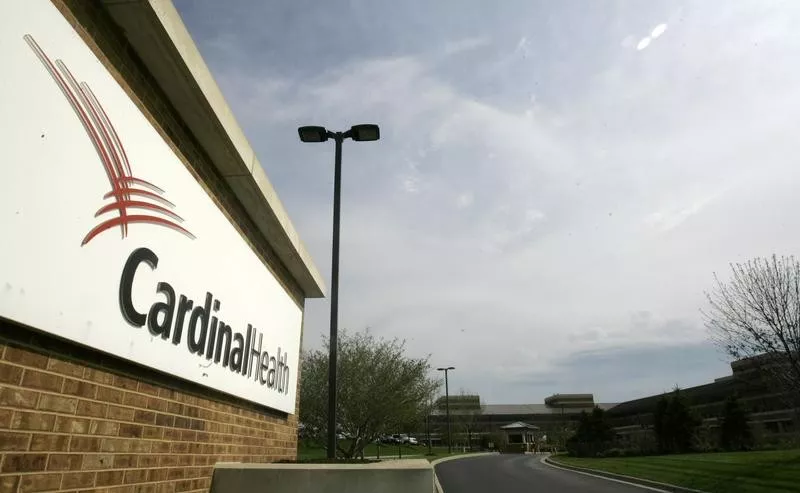
Kiichiro Sato / AP Photo
Cardinal Health serves more than 100,000 locations with pharmaceuticals and medical products like surgical gloves and apparel, which covers some 85 percent of all U.S. hospitals.
Oklahoma: NGL Energy Partners
Headquarters: Tulsa
Industry: Energy
Type: Public
Revenue: $24 billion
CEO: H. Michael Krimbill (pictured)
Bottom Line: NGL Energy Partners
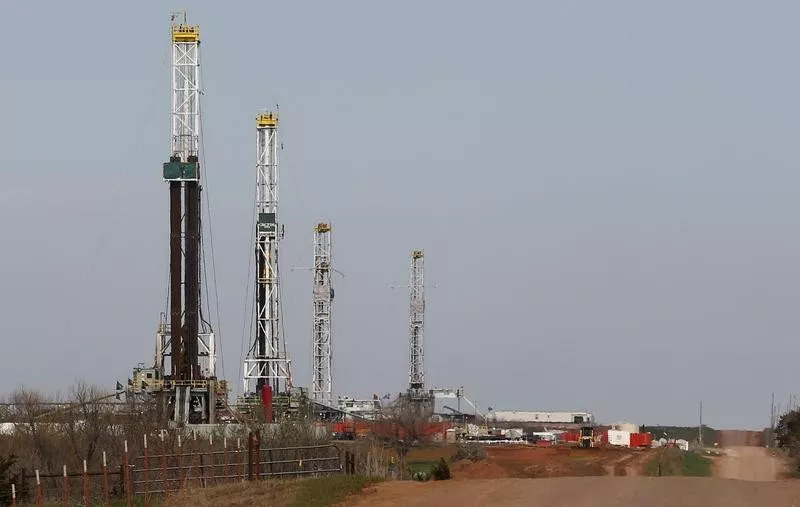
Sue Ogrocki / AP Photo
The company operates a vertically integrated energy business that transports crude oil, wastewater, natural gas liquids and refined petroleum products.
Oregon: Nike
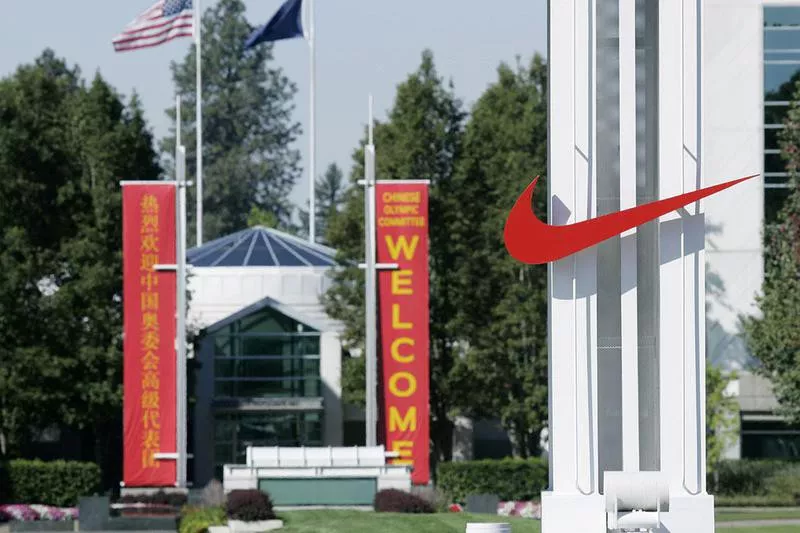
Don Ryan / AP Photo
Headquarters: Beaverton
Industry: Apparel
Type: Public
Revenue: $39.12 billion
CEO: Mark Parker
Bottom Line: Nike
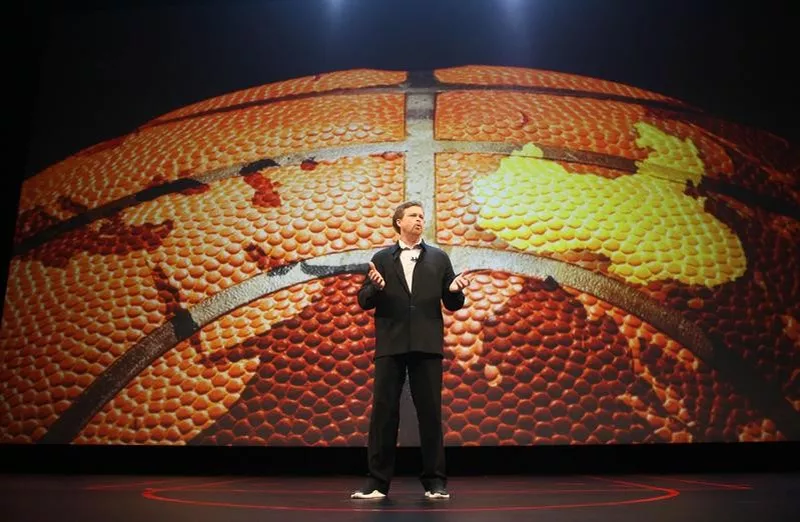
Rick Bowmer / AP Photo
Nike is arguably the most iconic sportswear brand in the world, with its telltale swoosh logo and "Just do it" tagline.
Its shoes and apparel are used in many different professional sports, and it also manufactures sporting equipment.
Pennsylvania: AmerisourceBergen
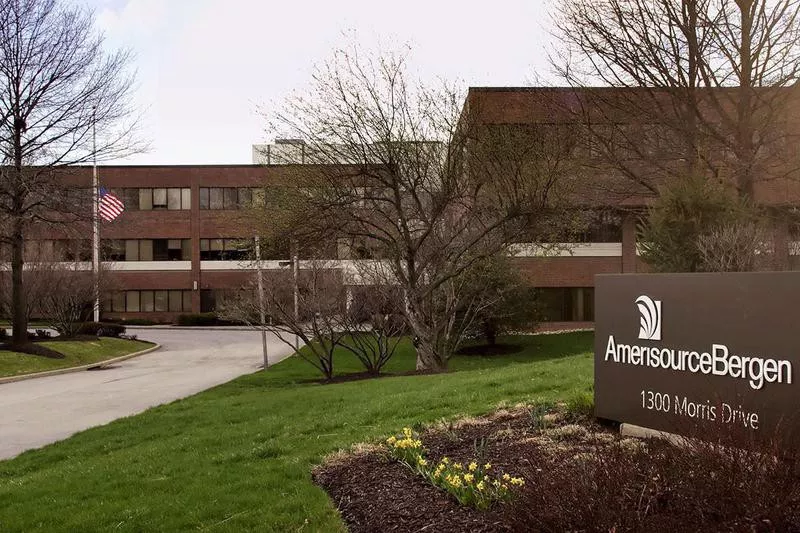
George Widman / AP Photo
Headquarters: Chesterbrook
Industry: Pharmaceuticals
Type: Public
Revenue: $179.59 billion
CEO: Steven H. Collis
AmerisourceBergen
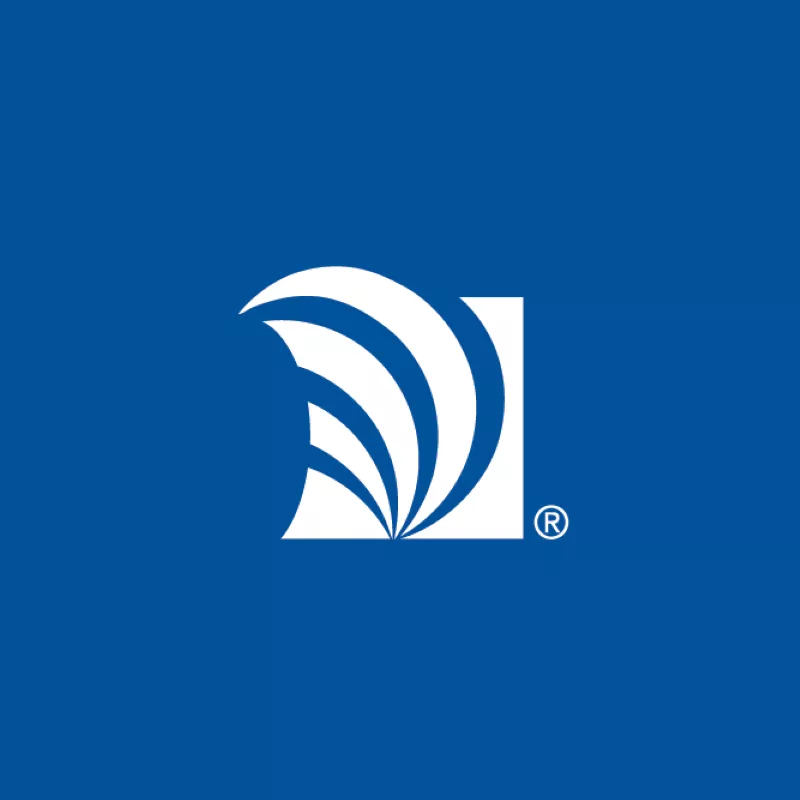
AmerisourceBergen / Facebook
AmerisourceBergen handles roughly 20 percent of all pharmaceutical distribution and sales in the U.S., making it the 10th-highest revenue-generating company on the Fortune 500 list.
Rhode Island: CVS Health Corporation
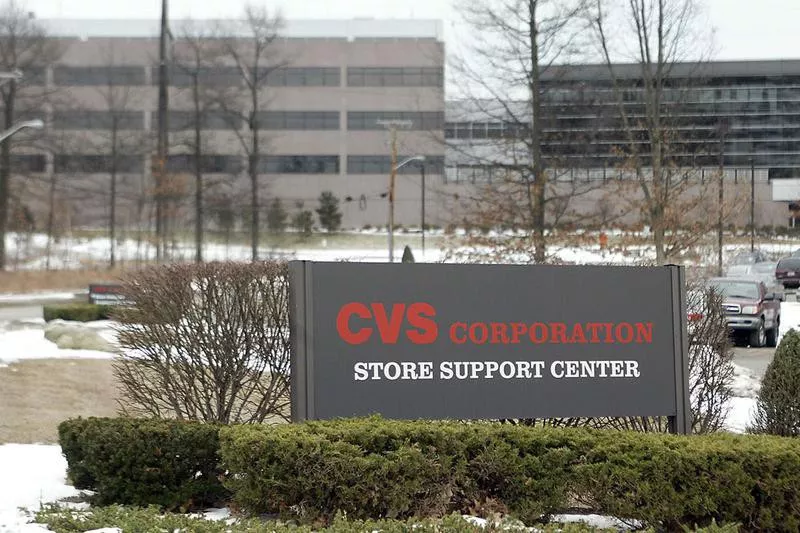
Stew Milne / AP Photo
Headquarters: Woonsocket
Industry: Retail pharmacy
Type: Public
Revenue: $256.77 billion
CEO: Larry Merlo
Bottom Line: CVS Health Corporation
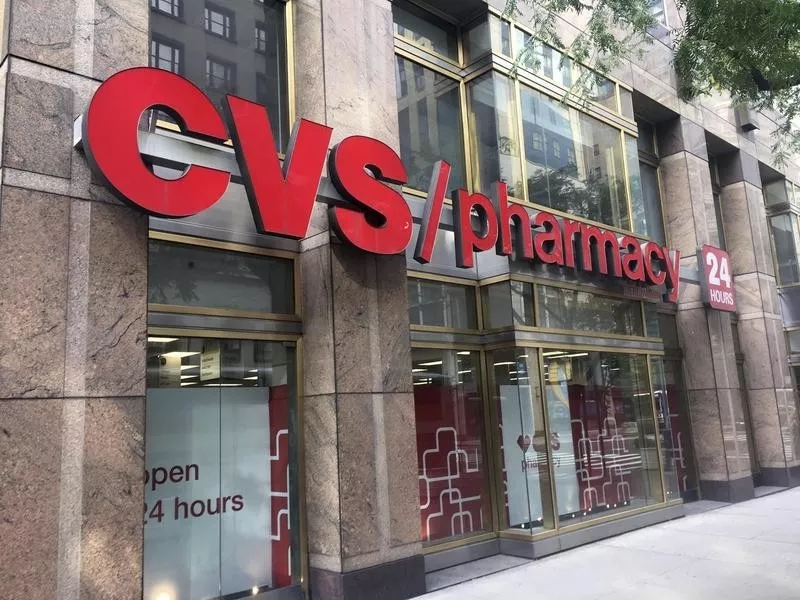
Star Max / AP Photo
CVS ranks No. 5 and No. 13, respectively, on the Fortune 500 and Fortune Global 500 lists.
There are CVS Pharmacy locations in 49 states, D.C. and Puerto Rico, and the company processes one out of every five prescriptions in the U.S.
South Carolina: Michelin North America
Headquarters: Greenville
Industry: Manufacturing
Type: Public
Revenue: $10.8 billion
CEO: Scott Clark (pictured)
Bottom Line: Michelin North America
The U.S. outpost is part of the global Michelin Group, based in France, that’s the world’s second-largest producer of tires.
In the U.S., Michelin employs more than 22,000 workers across 19 plants.
South Dakota: Tyson Fresh Meats
Headquarters: Dakota Dunes
Industry: Food processing
Type: Public
Revenue: $20 billion
CEO: Noel White
Bottom Line: Tyson Fresh Meats
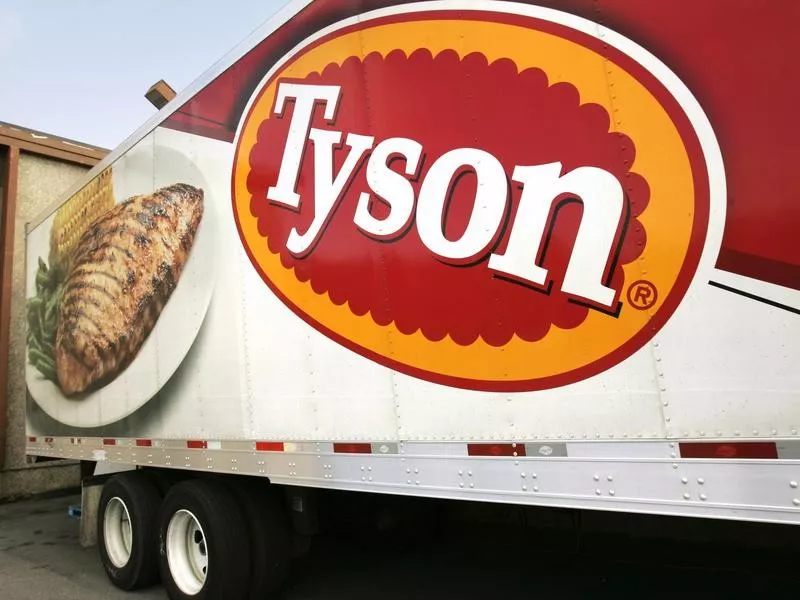
Danny Johnston / AP Photo
Tyson Fresh Meats operates the beef and pork arm of Tyson Foods, the Arkansas-based company that’s the world’s second-largest producer of chicken, beef and pork, and the largest exporter of beef in the U.S.
Tennessee: FedEx
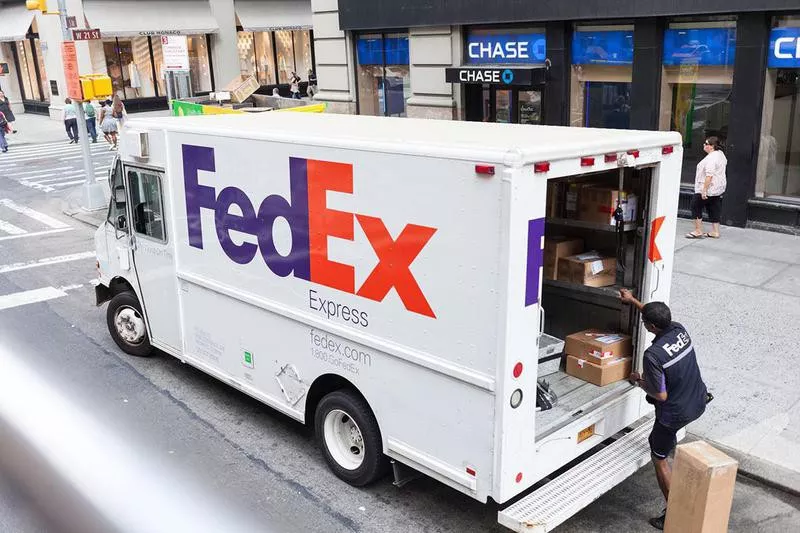
Getty Images
Headquarters: Memphis
Industry: Shipping
Type: Public
Revenue: $69.69 billion
CEO: Frederick W. Smith
Bottom Line: FedEx
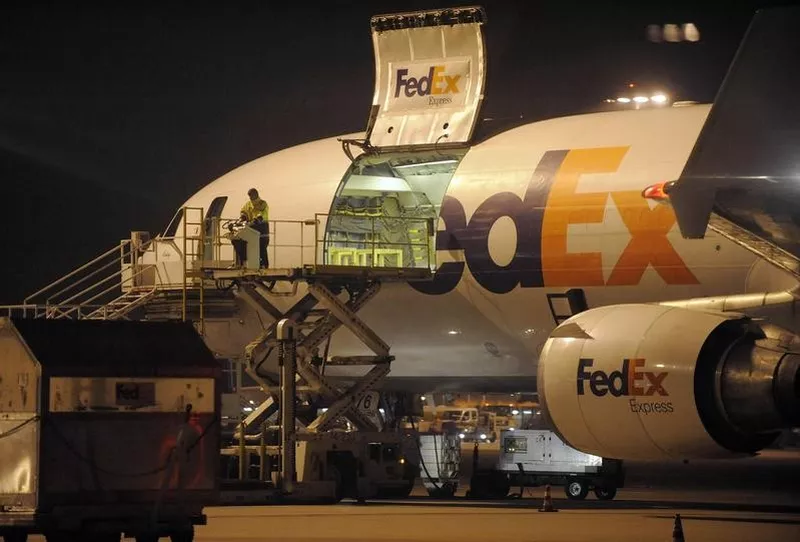
Martin Meissner / AP Photo
FedEx is a major U.S.-based global courier service that pioneered real-time tracking of packages and overnight delivery.
On average, it moves 16 million shipments worldwide daily.
Texas: ExxonMobil
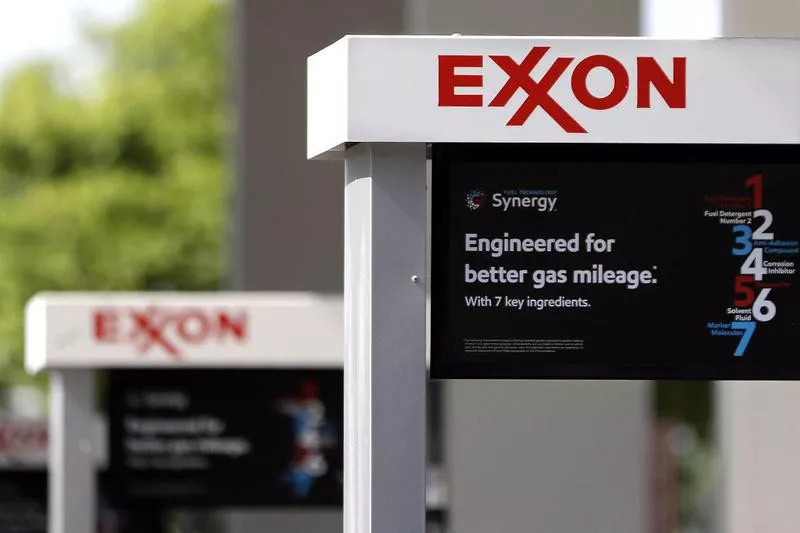
Mark Humphrey / AP Photo
Headquarters: Irving
Industry: Energy
Type: Public
Revenue: $264.94 billion
CEO: Darren Woods
Bottom Line: ExxonMobil
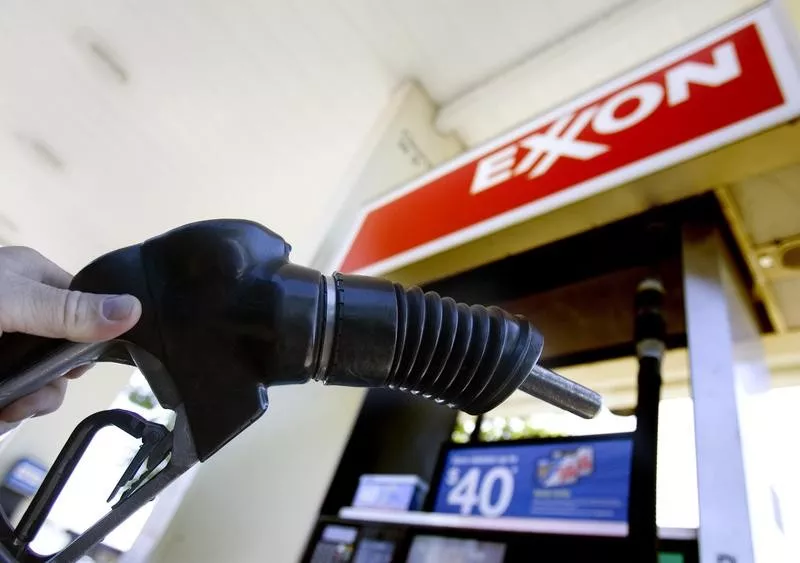
Don Ryan / AP Photo
One of the world’s Big Oil companies, ExxonMobil is the largest oil refiner in the world with a production capacity of 6.3 million barrels a day.
It ranks third on the Fortune 500 list.
Utah: Sinclair Oil
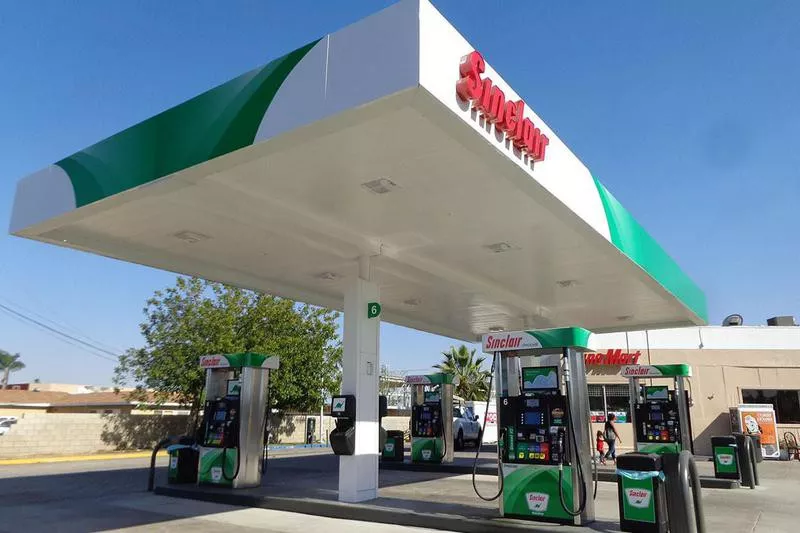
Sinclair Oil Corp. / Facebook
Headquarters: Salt Lake City
Industry: Energy
Type: Private
Revenue: $5 billion
CEO: Ross Matthews
Bottom Line: Sinclair Oil
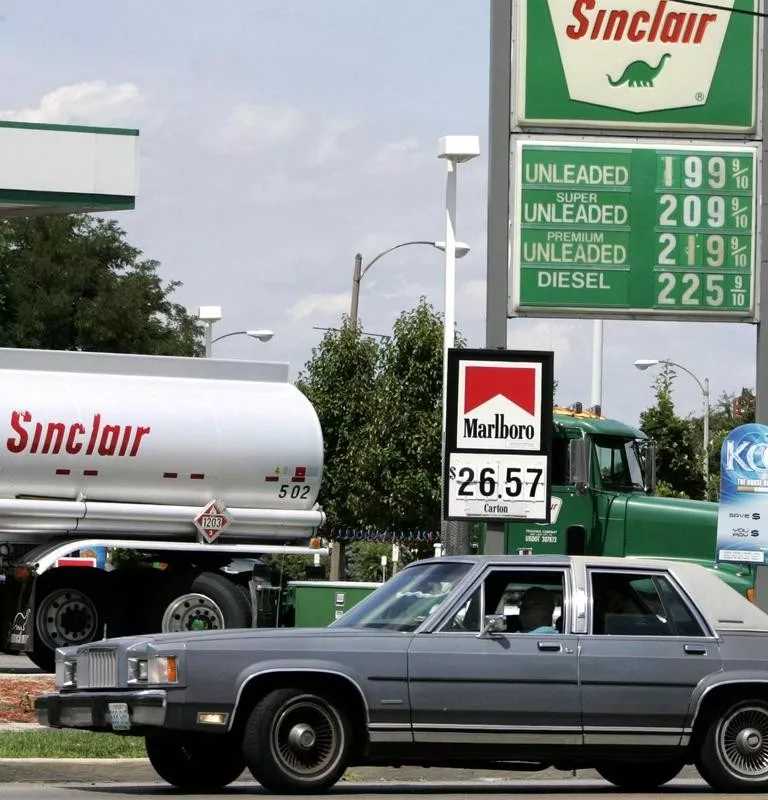
James A. Finley / AP Photo
Sinclair is one of the largest privately-owned businesses in the U.S.
Its holdings include refineries, gas stations, hotels, and a ski resort and cattle ranch.
It operates more than 1,400 gas stations in 29 states.
Vermont: NLV Financial
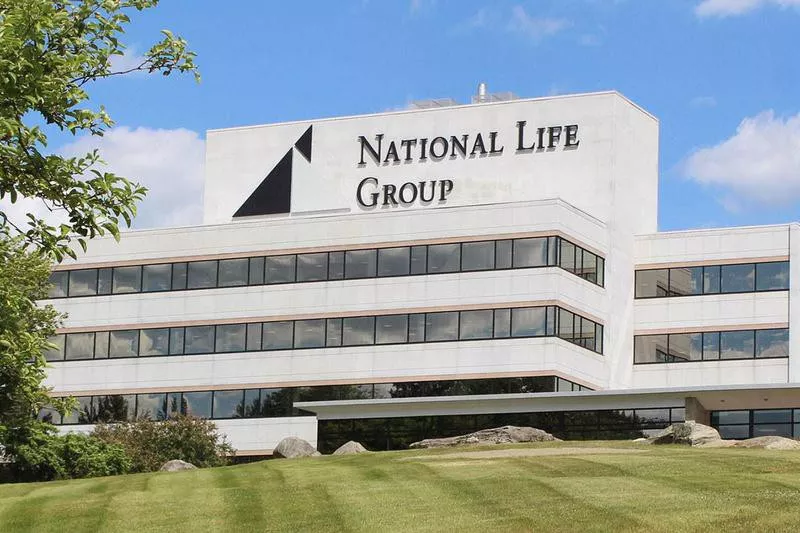
National Life Group / Facebook
Headquarters: Montpelier
Industry: Life insurance
Type: Private
Revenue: $1.9 billion
CEO: Mehran Assadi
Bottom Line: NLV Financial

National Life Group / Facebook
NLV Financial is an insurance provider that offers annuities, retirement, mutual funds and life insurance services.
Virginia: General Dynamics

Richard Burkhart / AP Photo
Headquarters: Falls Church
Industry: Defense, aerospace
Type: Public
Revenue: $39.35 billion
CEO: Phebe Novakovic (pictured)
Bottom Line: General Dynamics

David Goldman / AP Photo
The nation’s fifth-largest defense contractor focuses its business in four main areas: marine systems, combat systems, information systems technology and aerospace.
Washington: Amazon
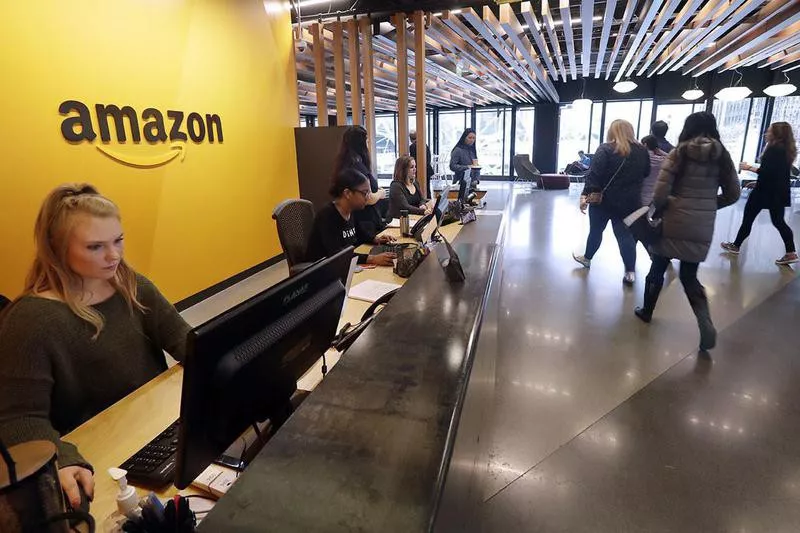
Elaine Thompson / AP Photo
Headquarters: Seattle
Industry: E-commerce
Type: Public
Revenue: $280.52 billion
CEO: Jeff Bezos
Bottom Line: Amazon
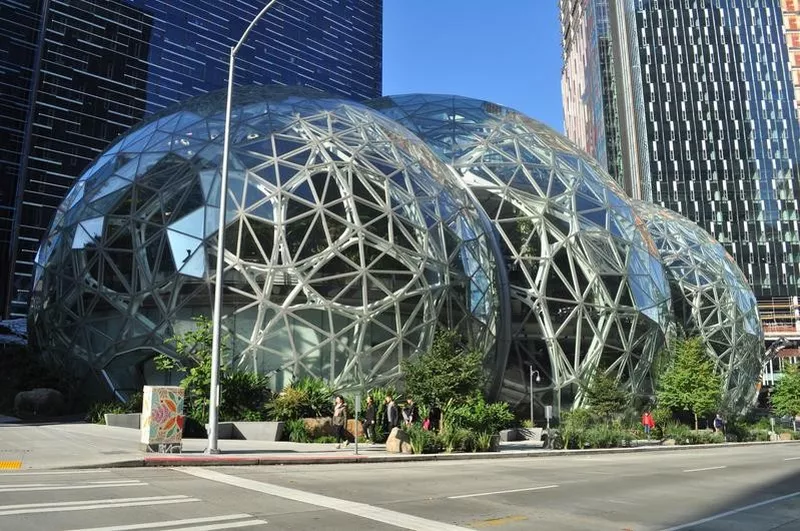
Joe Mabel / Wikipedia
The company does business in a variety of technology sectors, but by far its largest footprint is in online retail, operating the world’s largest e-commerce marketplace.
Amazon is also the second-largest employer in the U.S. and one of the world’s most valuable companies, ranking second on the Fortune 500 and ninth on the Fortune 500 global.
West Virginia: Monongahela Power
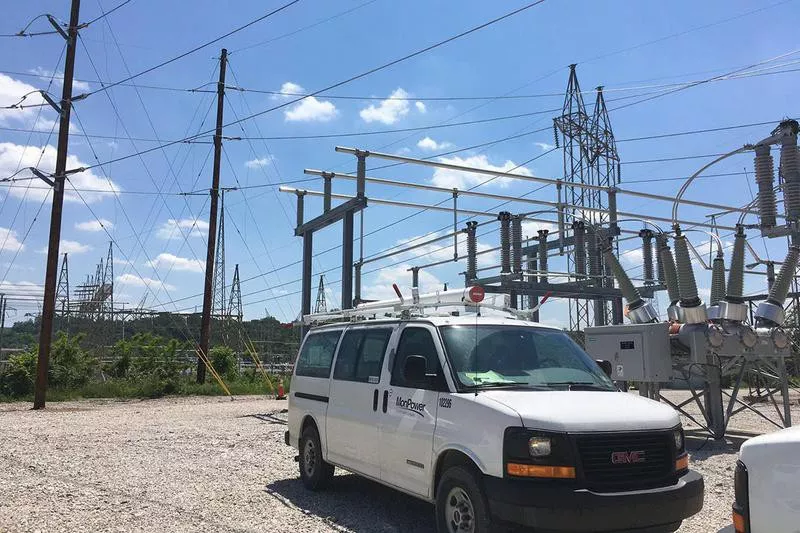
Mon Power / Facebook
Headquarters: Fairmont
Industry: Utilities
Type: Subsidiary
Revenue: $1.7 billion
CEO: Chuck Jones
Bottom Line: Monongahela Power
Known simply as Mon Power, the company is a subsidiary of FirstEnergy and serves 385,000 customers in West Virginia.
The company fired its former CEO, Chuck Jones, in 2020 due to a $61 million racketeering scheme involving former Ohio House Speaker Larry Householder.
Wisconsin: Johnson Controls International
Headquarters: Milwaukee
Industry: Manufacturing
Type: Public
Revenue: $24 billion
CEO: George R. Oliver (pictured)
Bottom Line: Johnson Controls International
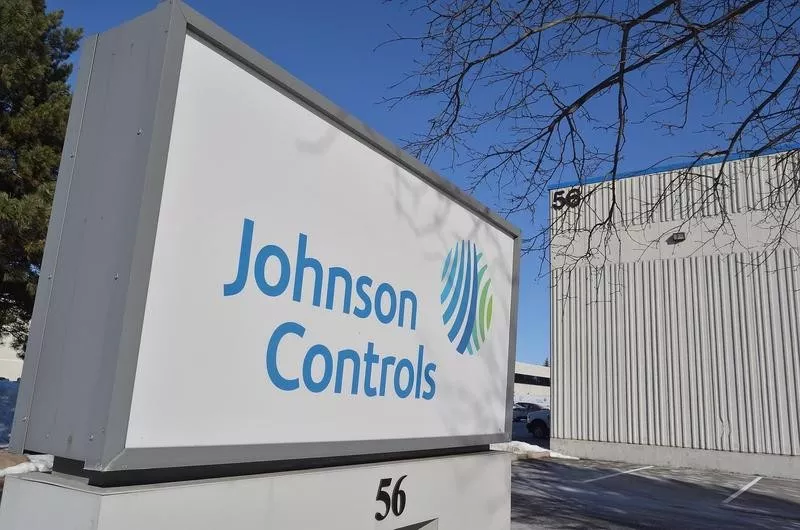
Raysohno / Wikipedia
The company formed when Tyco International and Johnson Controls merged in 2016.
Because Tyco was based in Ireland, the new company was able to avoid a huge tax bill and become the third-largest U.S. tax inversion in history.
Wyoming: Cloud Peak Energy
Headquarters: Gillette
Industry: Energy
Type: Public
Revenue: $710 million
CEO: Colin Marshall (pictured)
Bottom Line: Cloud Peak Energy
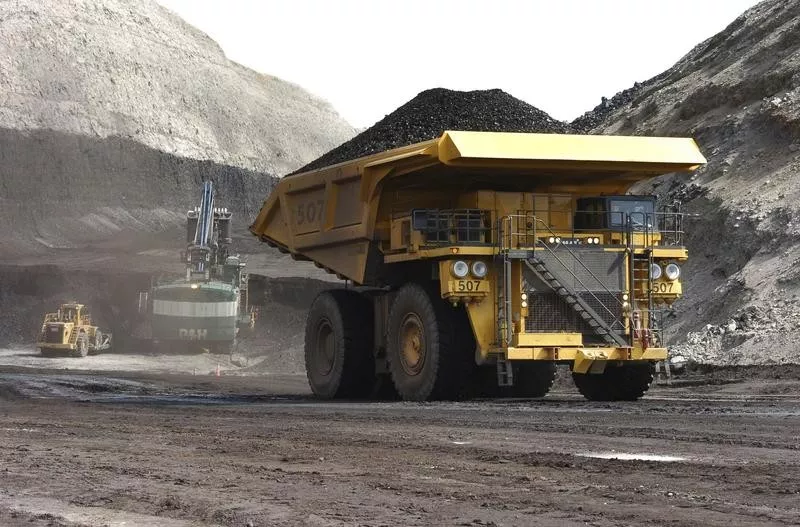
Matthew Brown
While it's technically still the biggest business in Wyoming, things aren't looking too great for Cloud Peak Energy.
The coal company filed for bankruptcy in May 2019 and owed about $400 million in debt.
To become solvent, the company sold off its three coal plants to the Nevada-based Navajo Transitional Energy company in December 2019.

